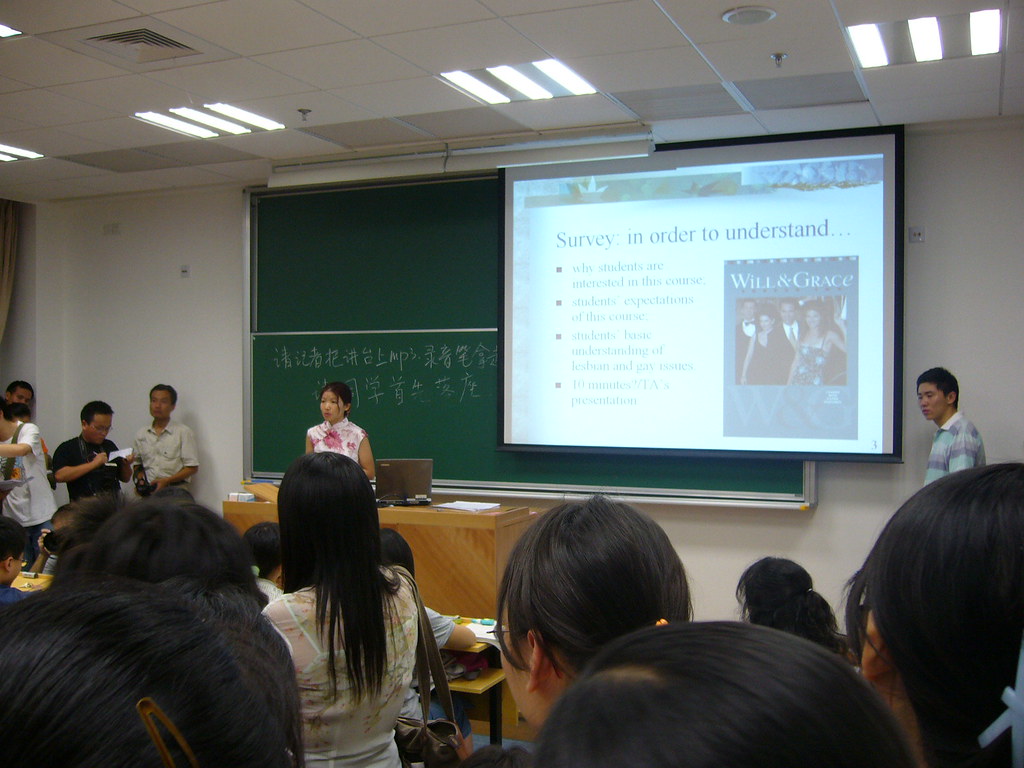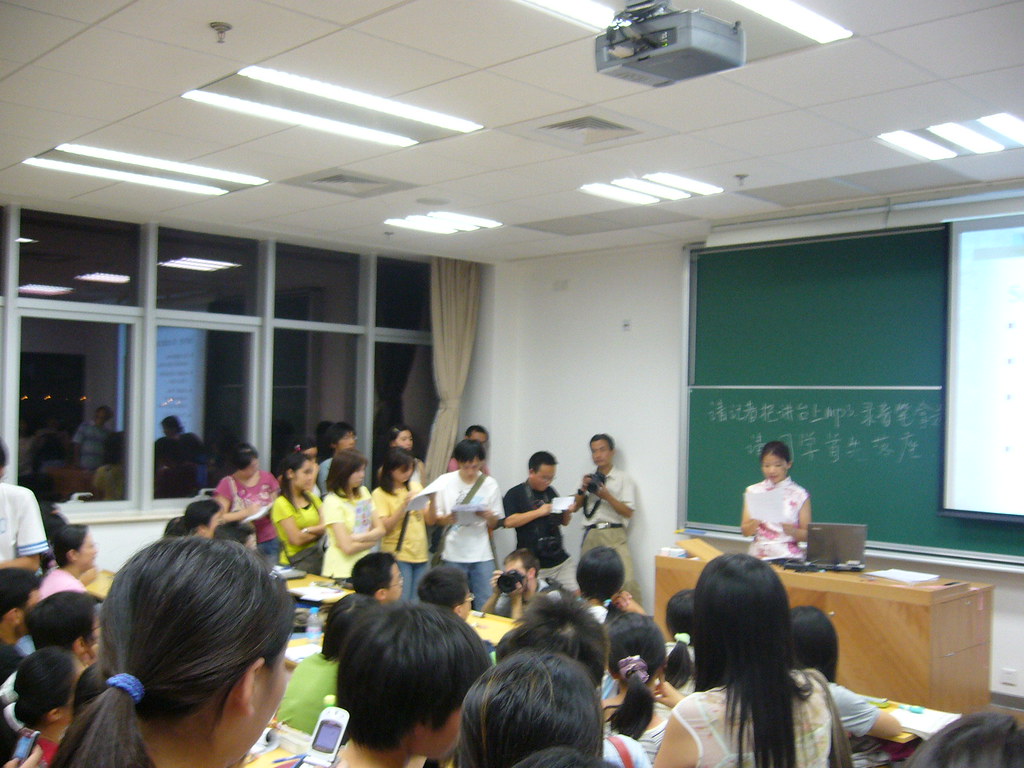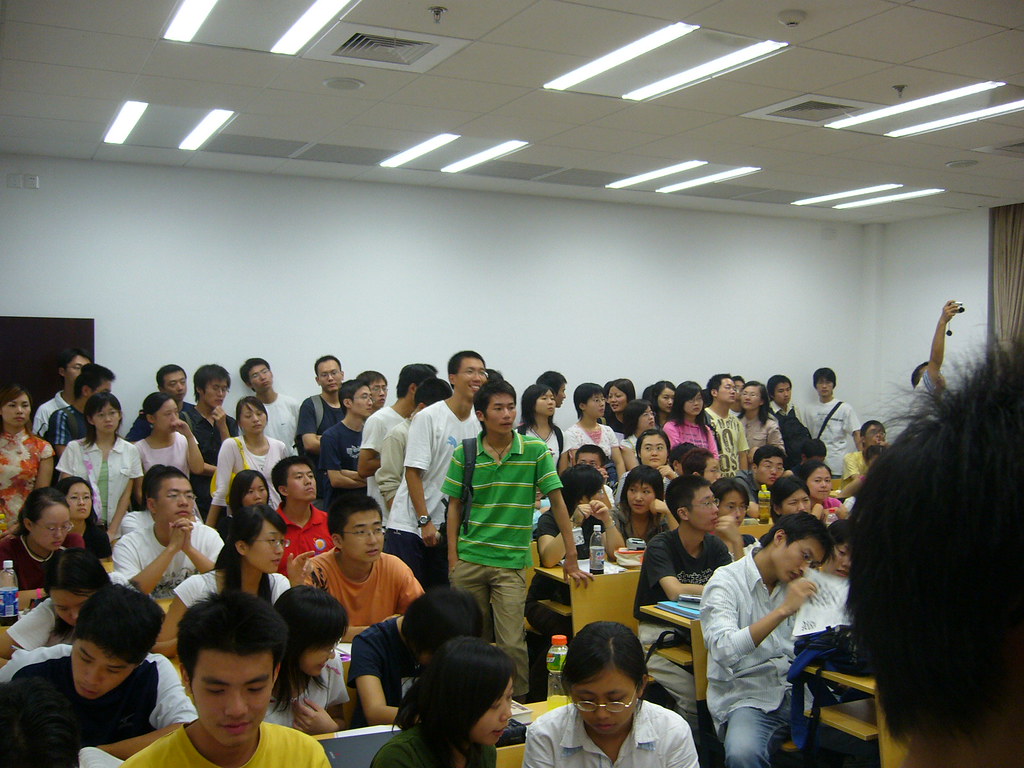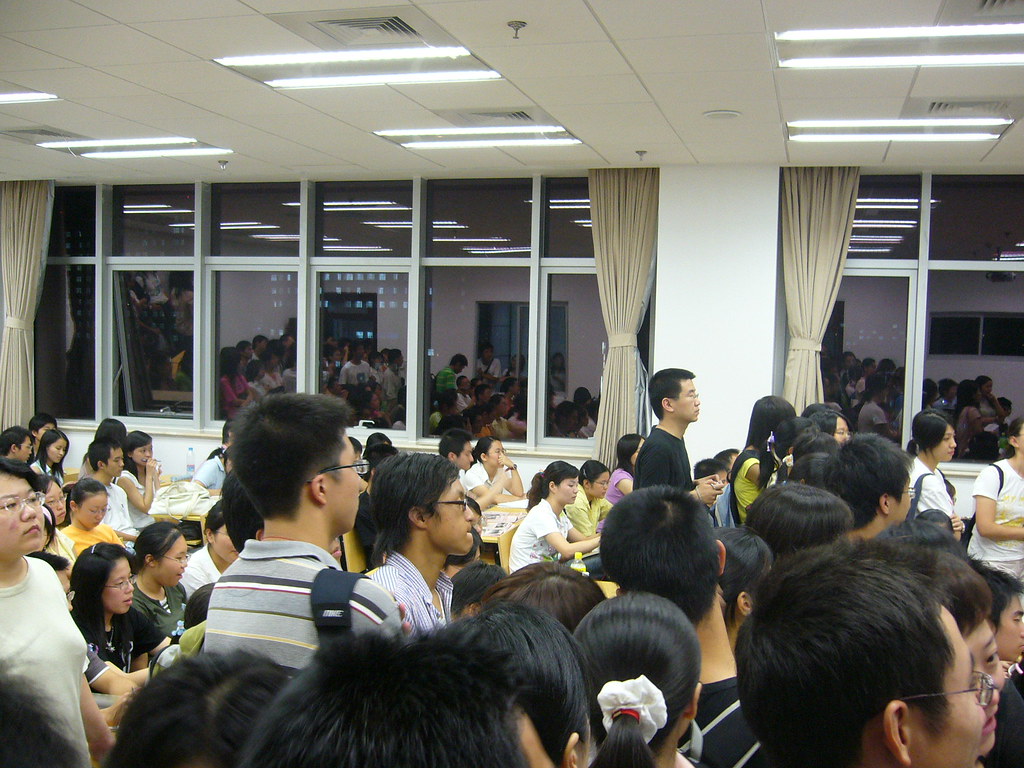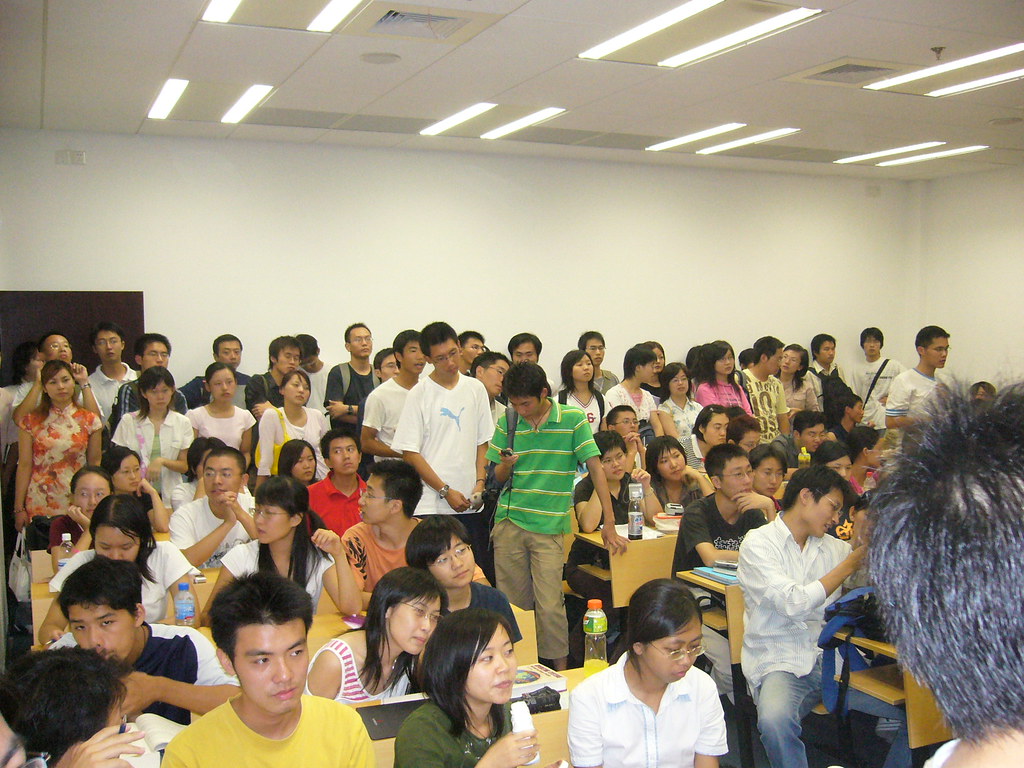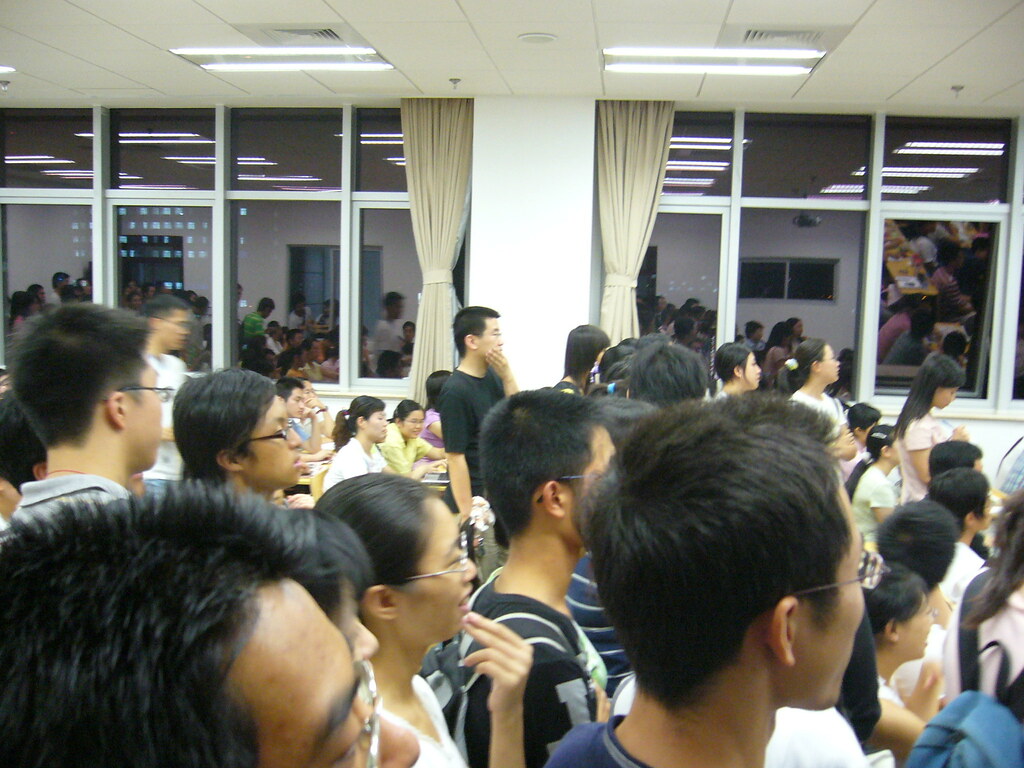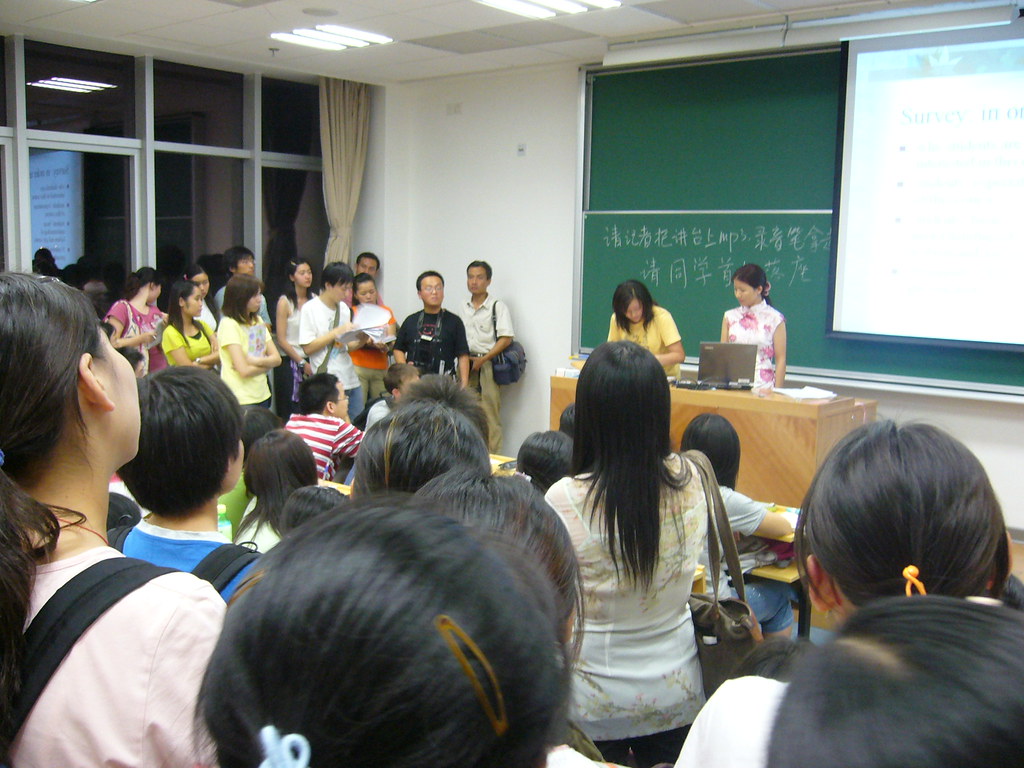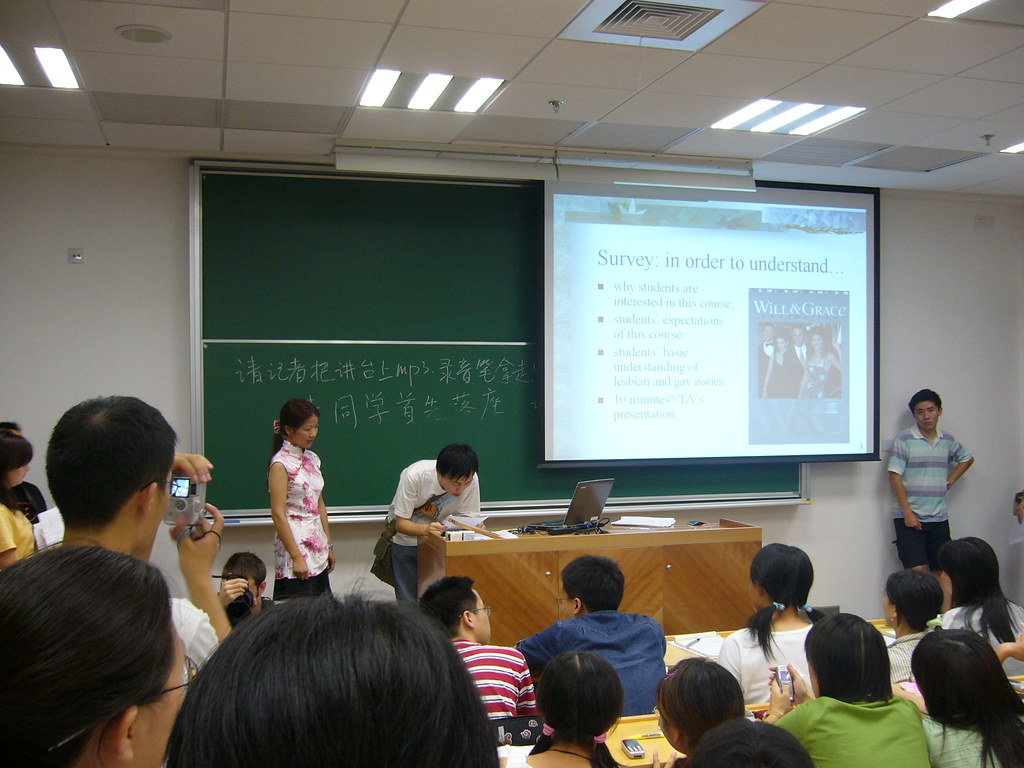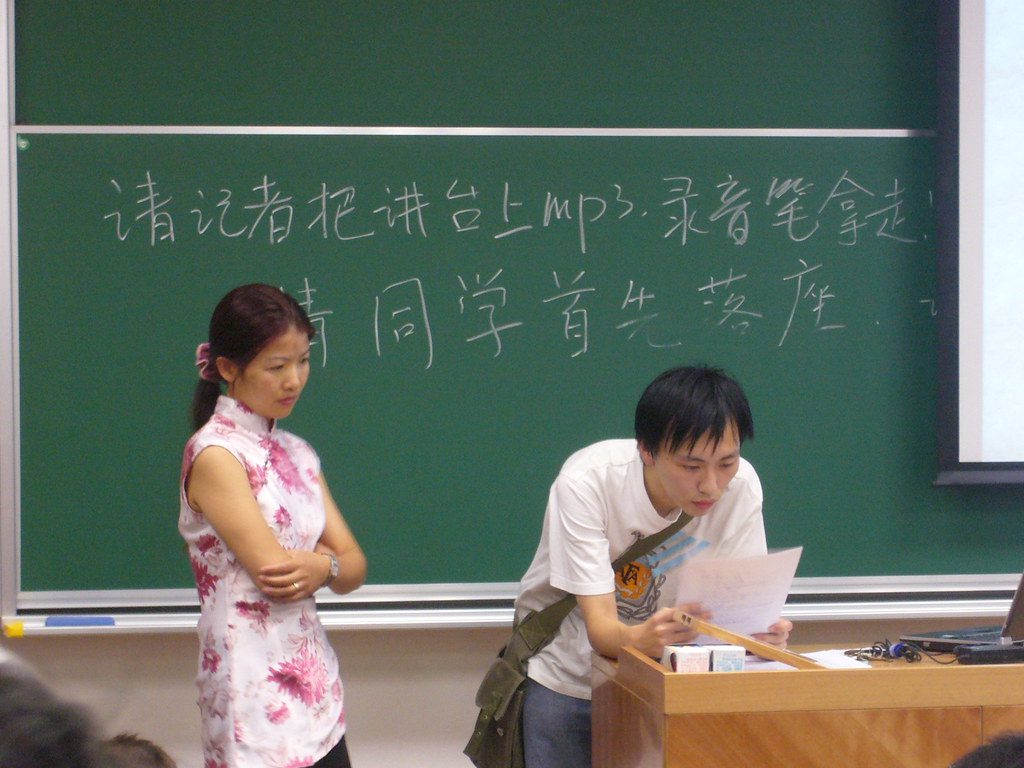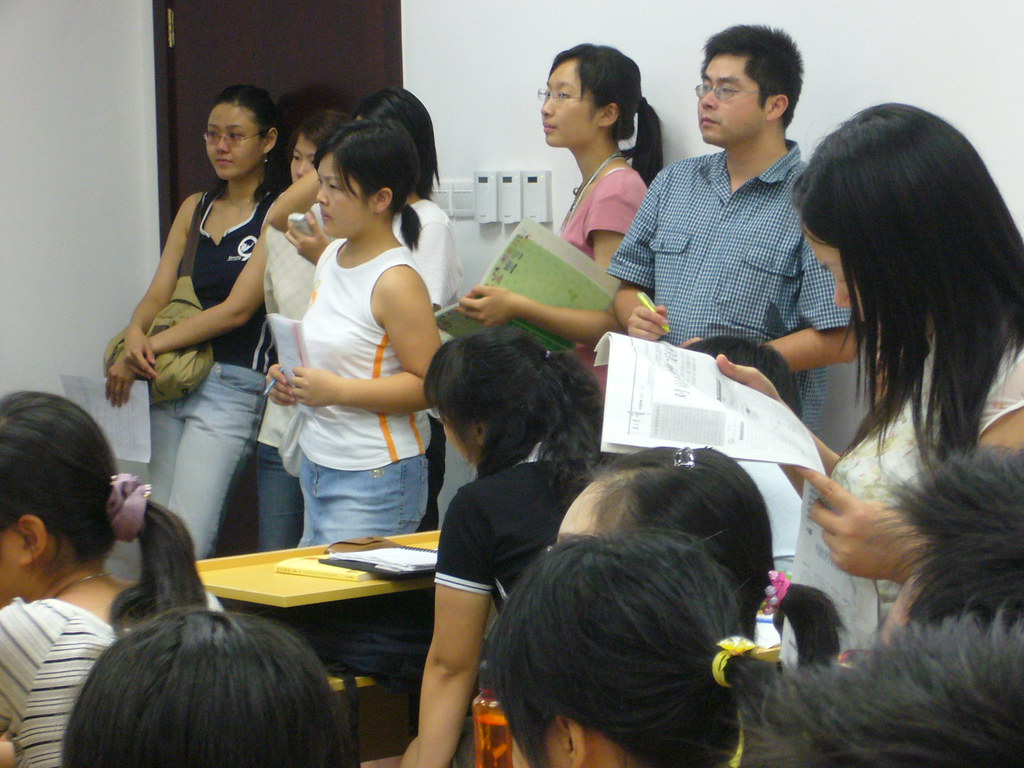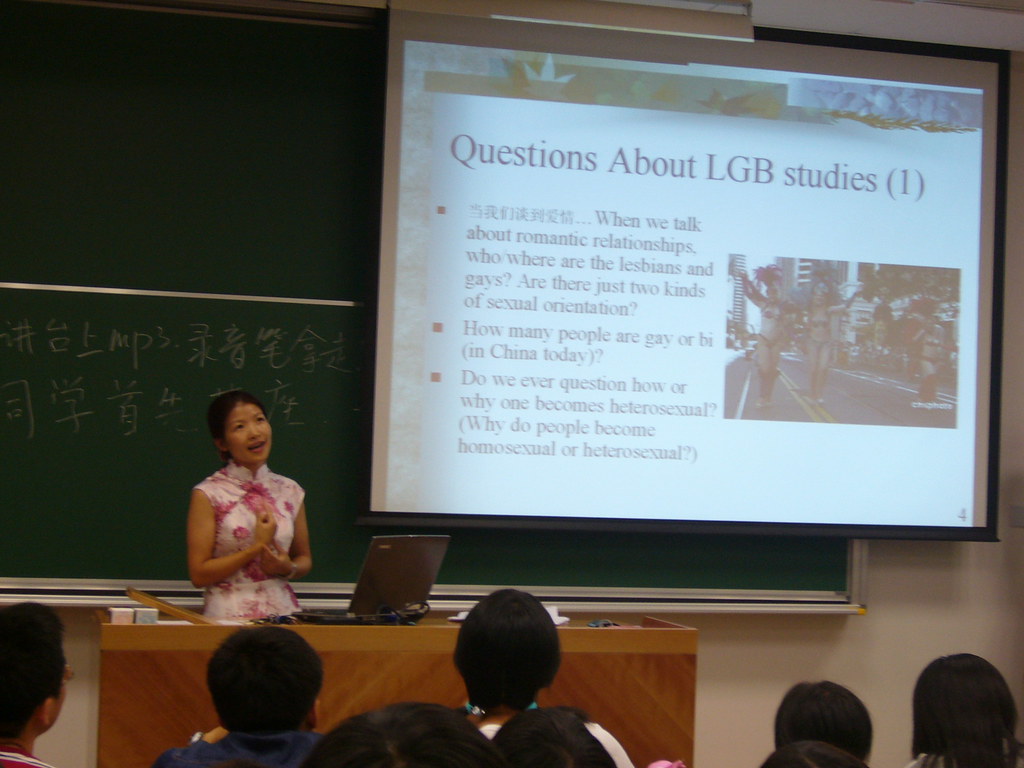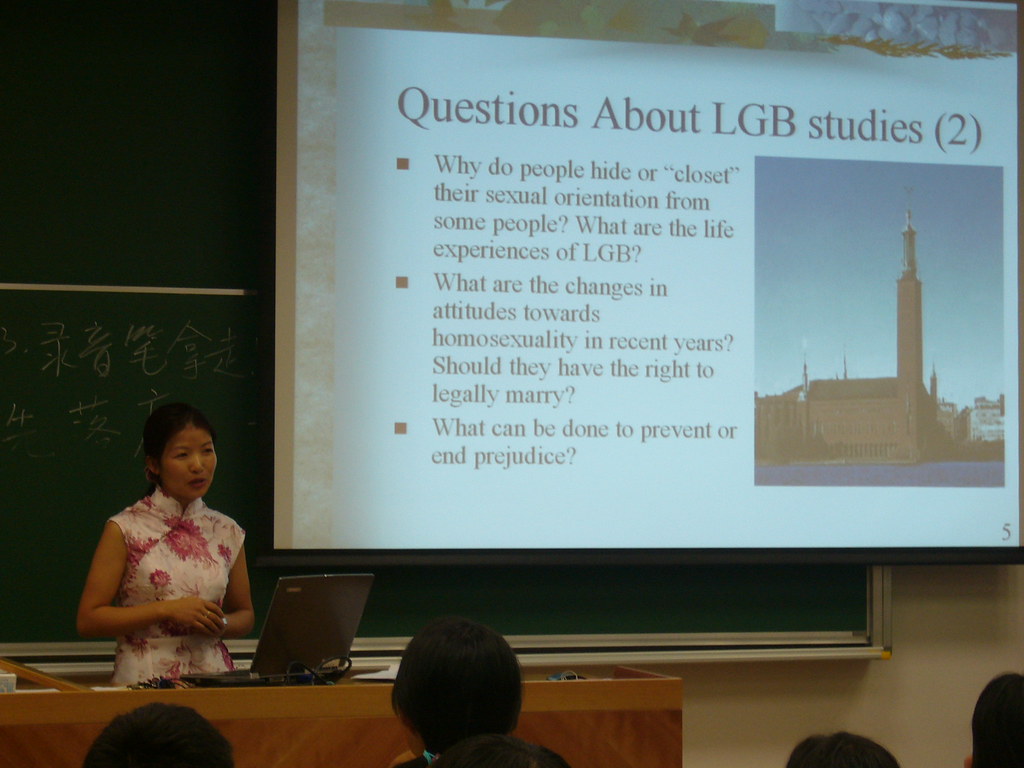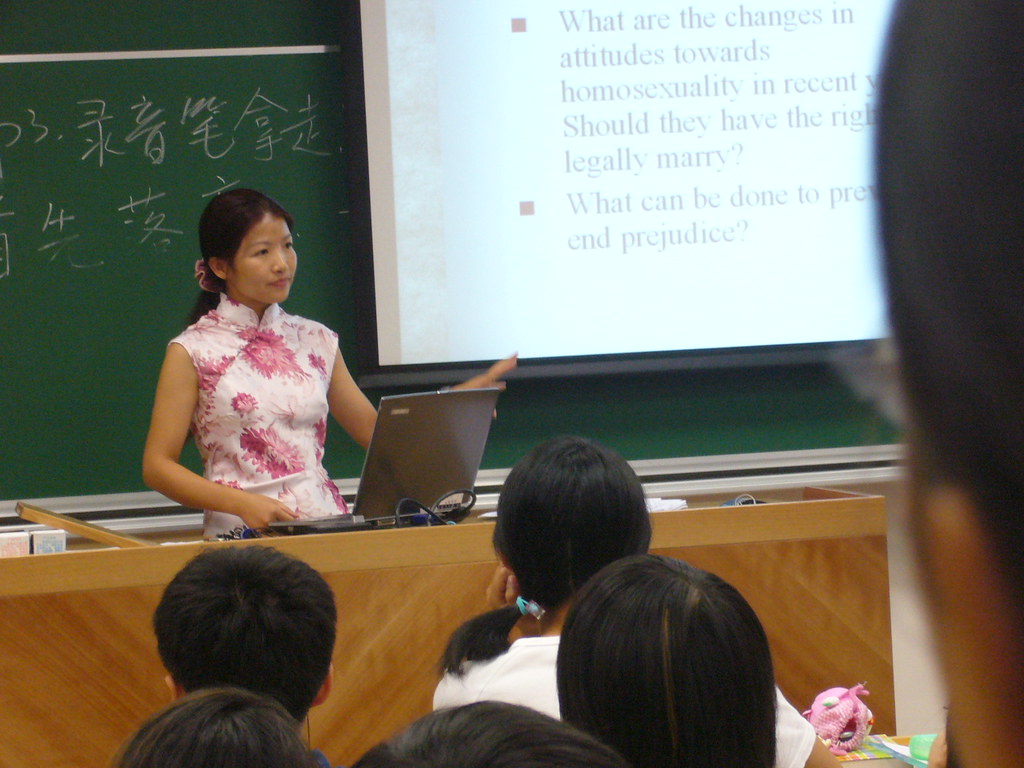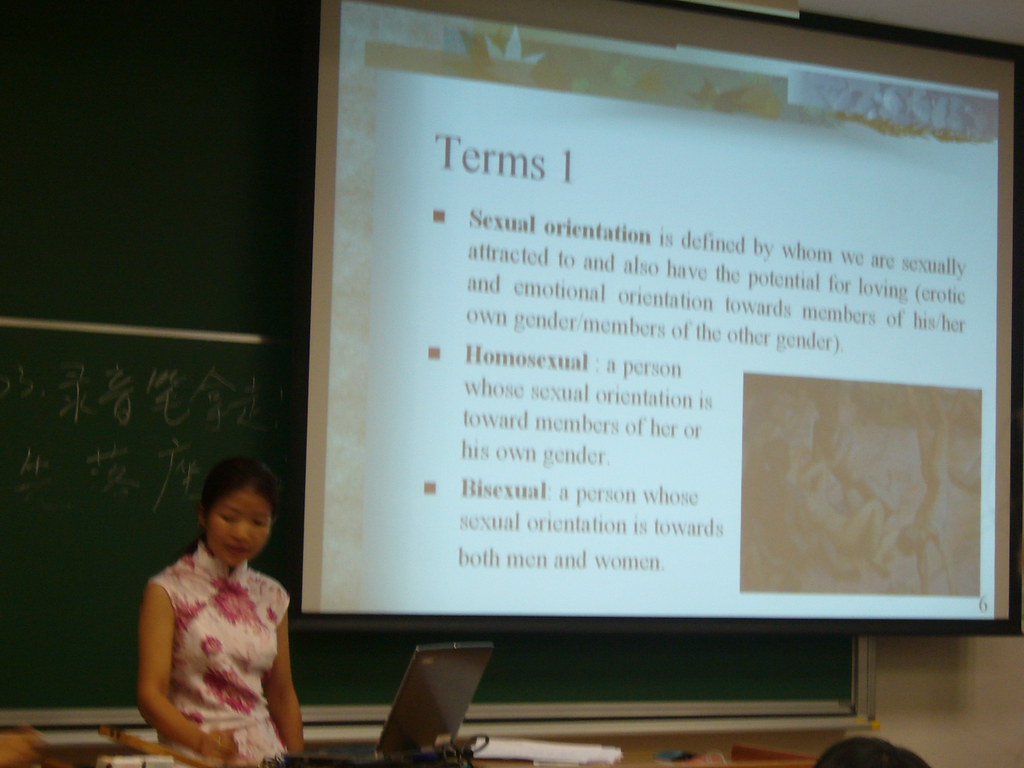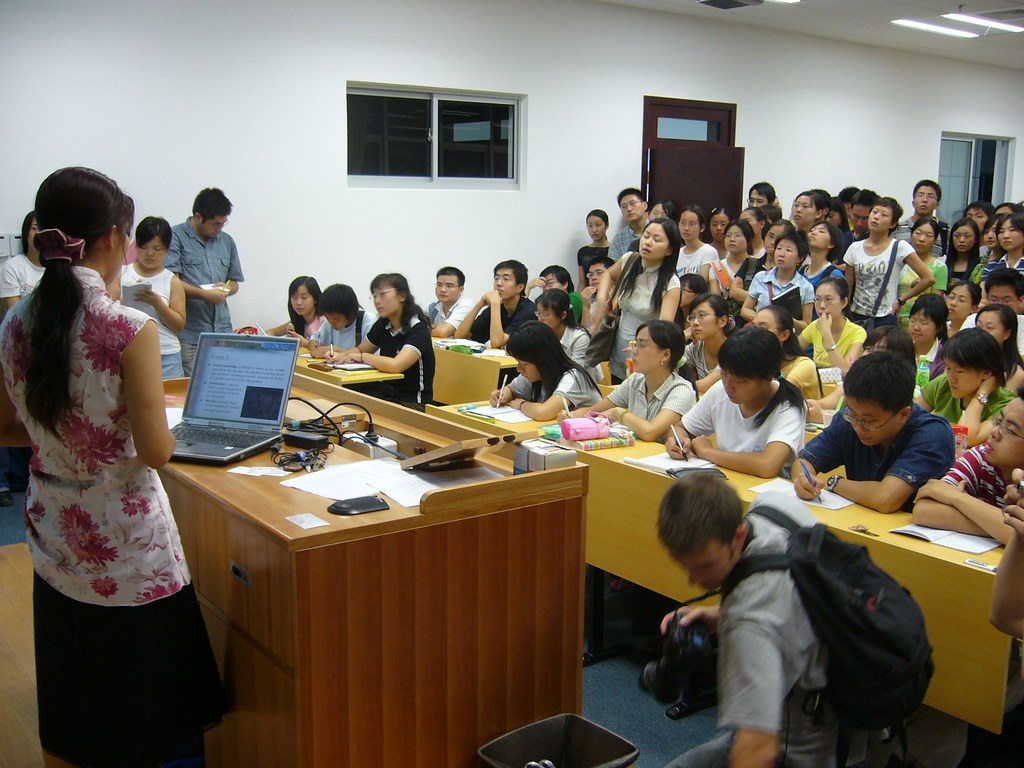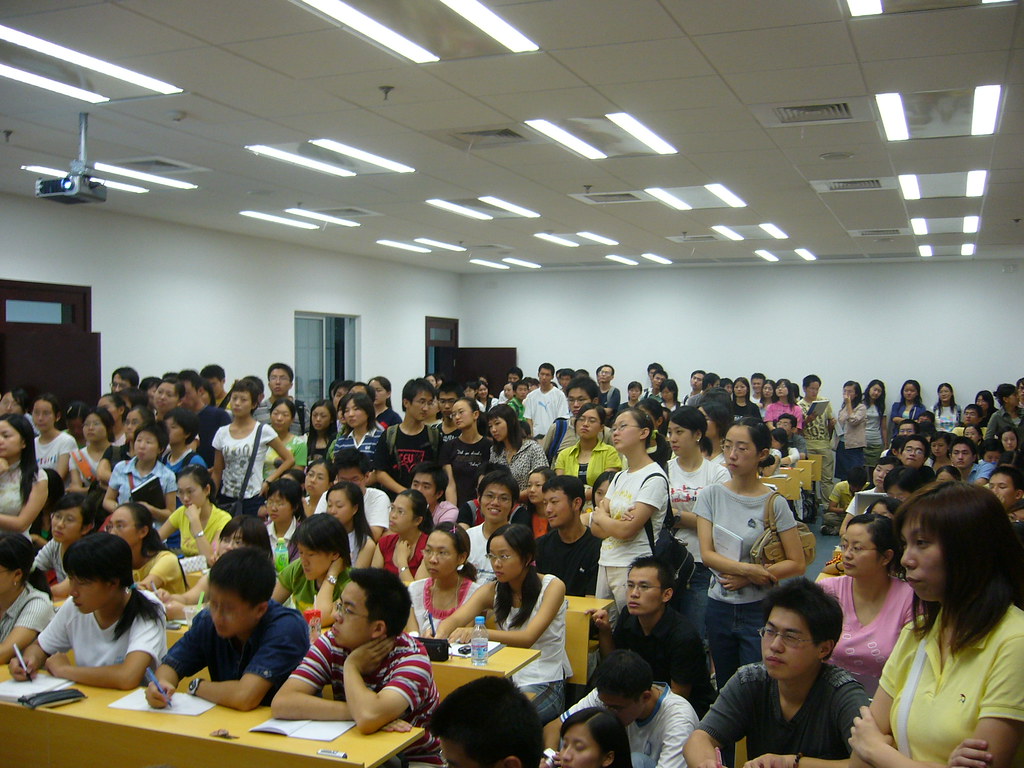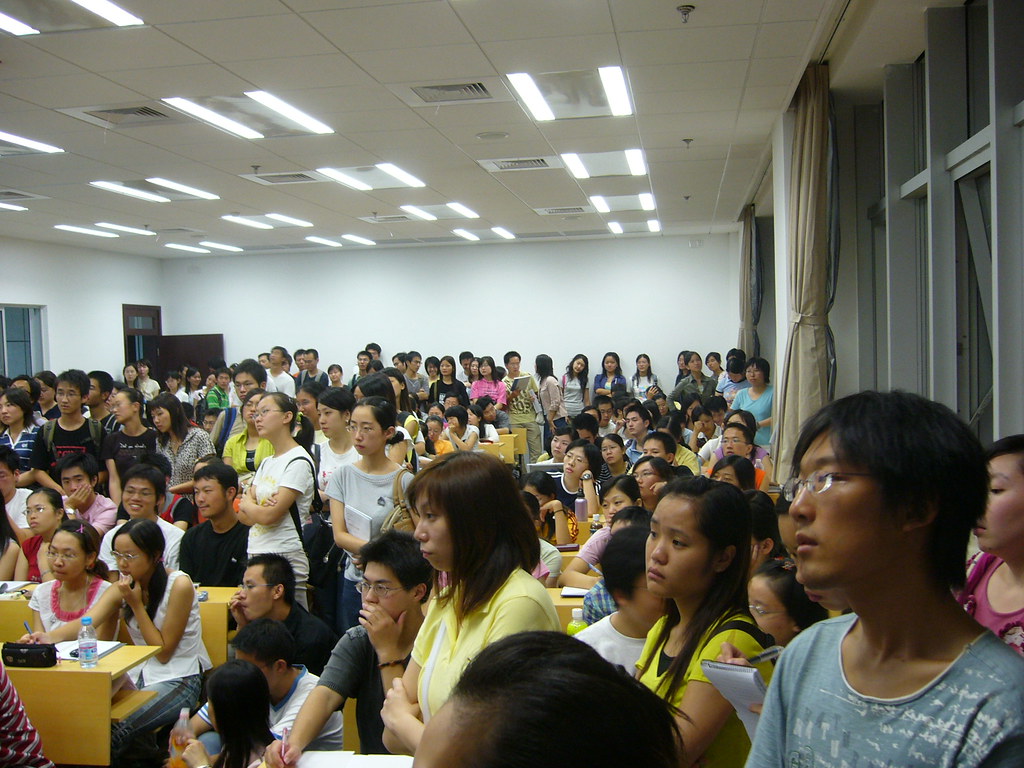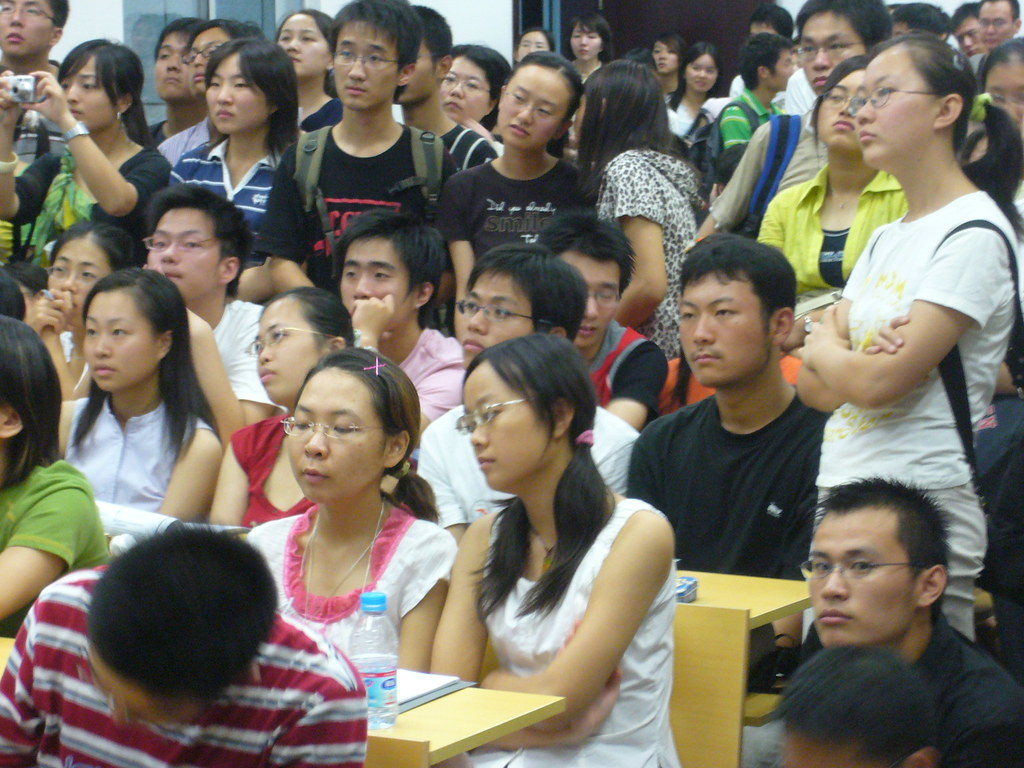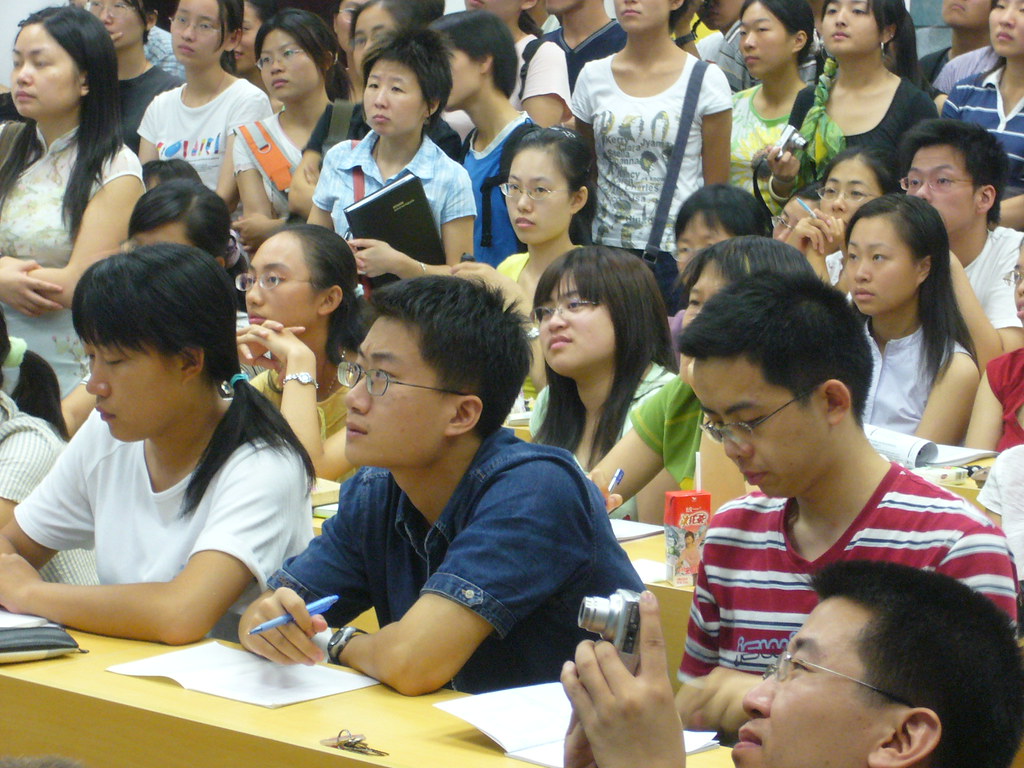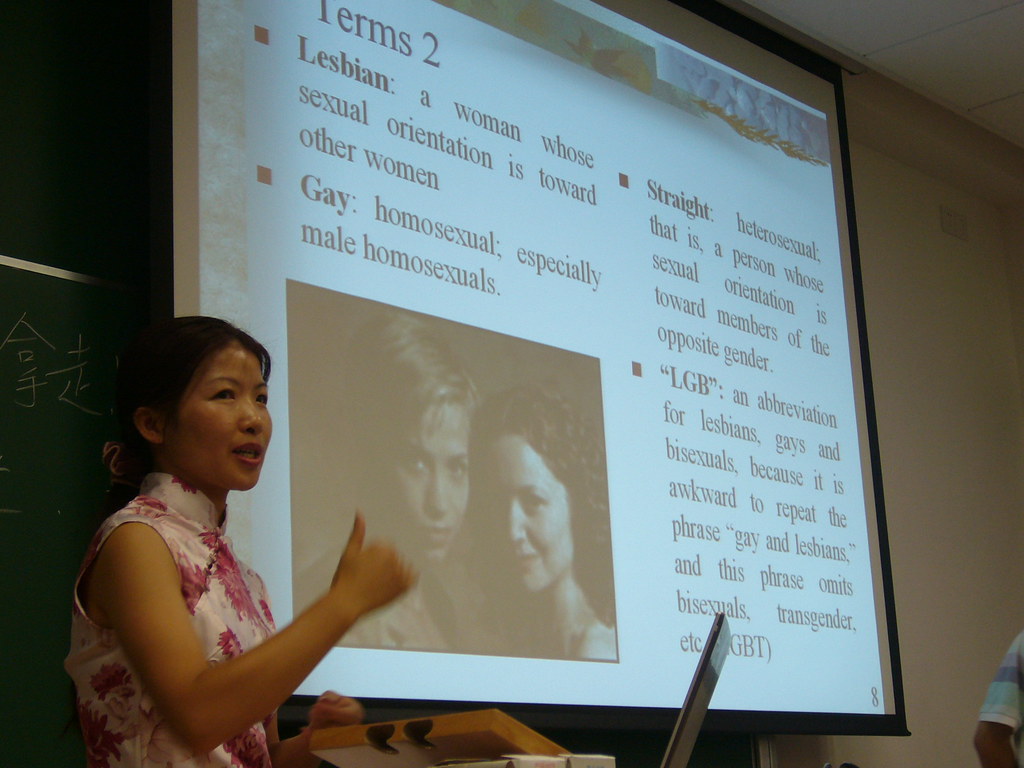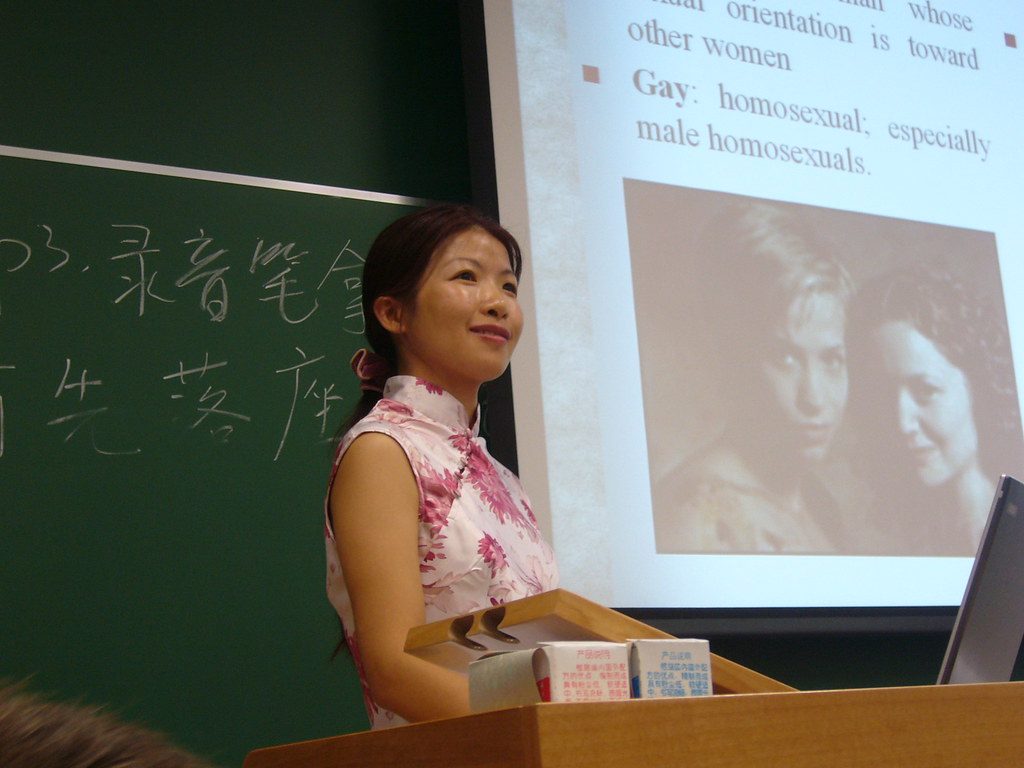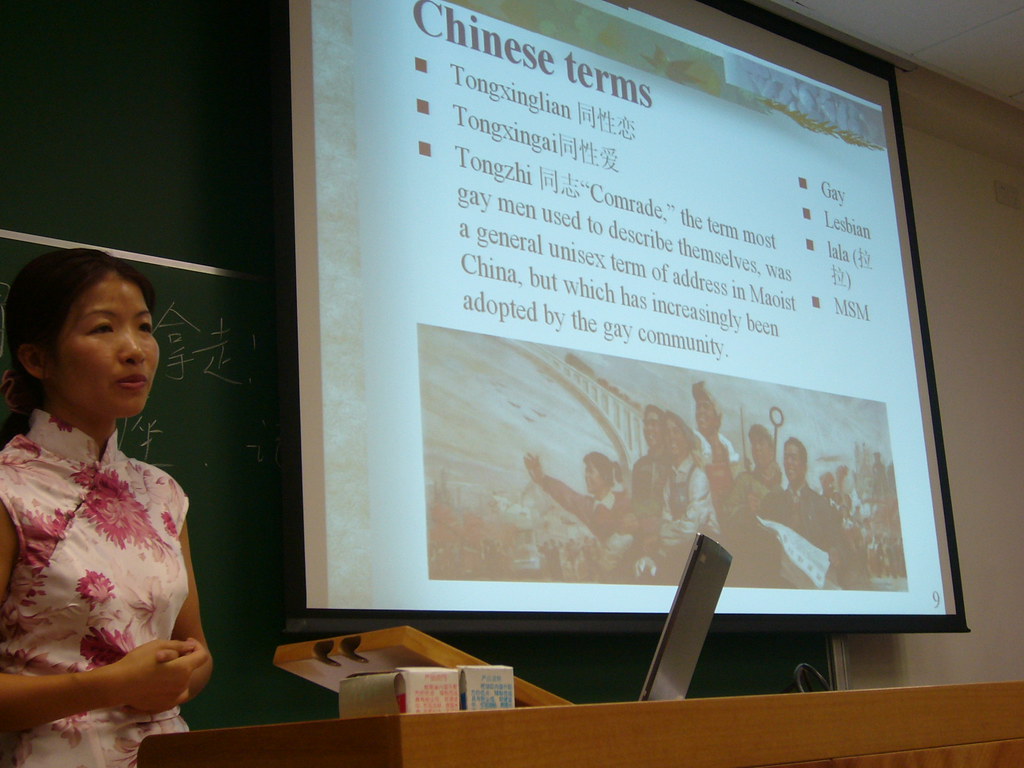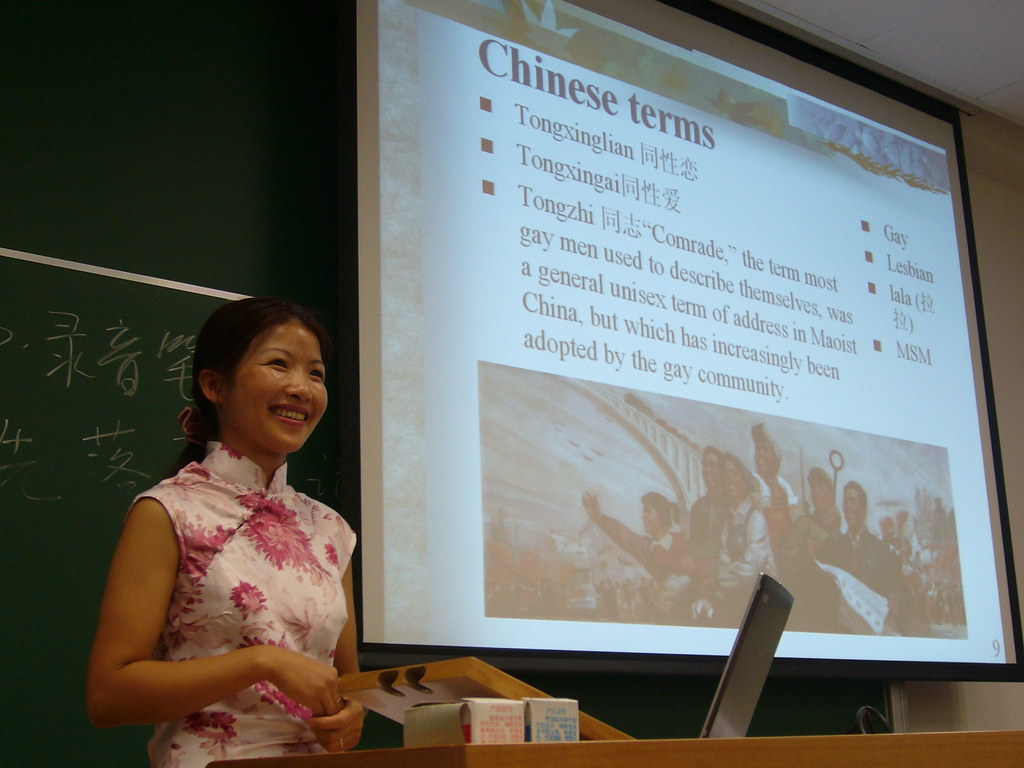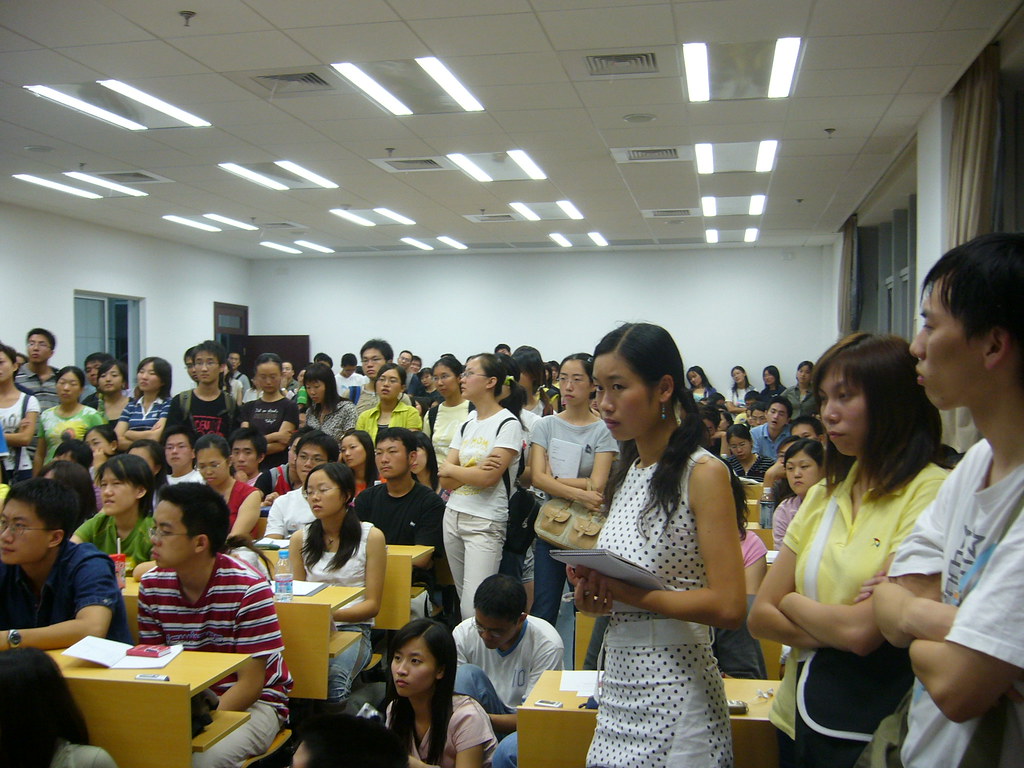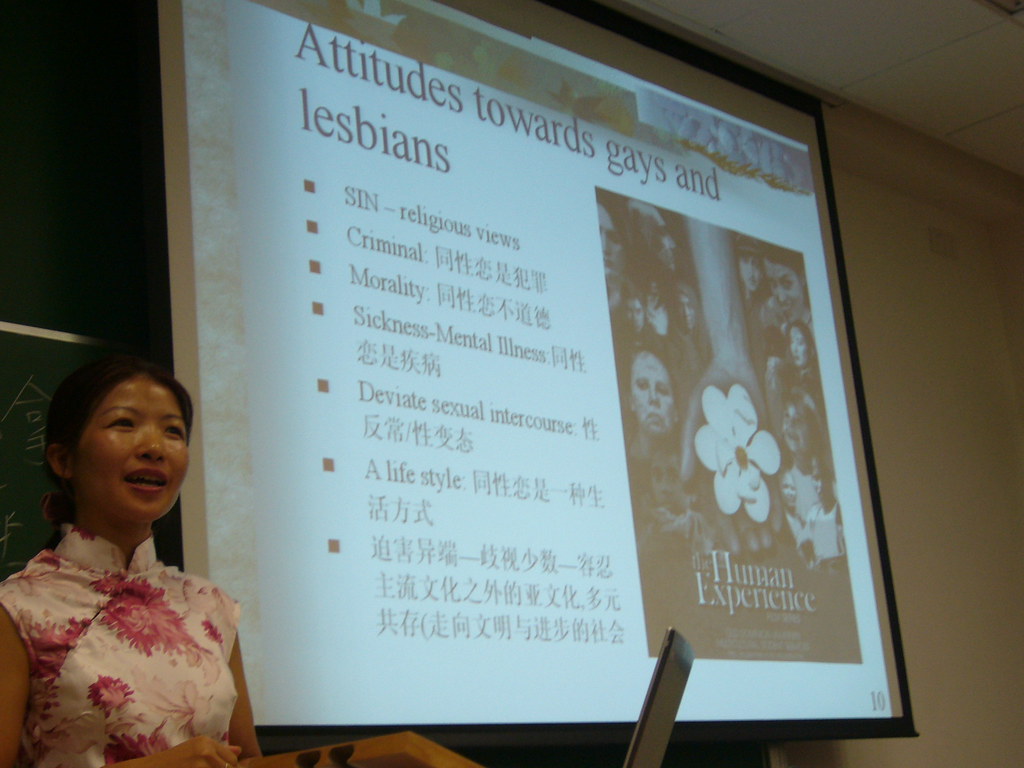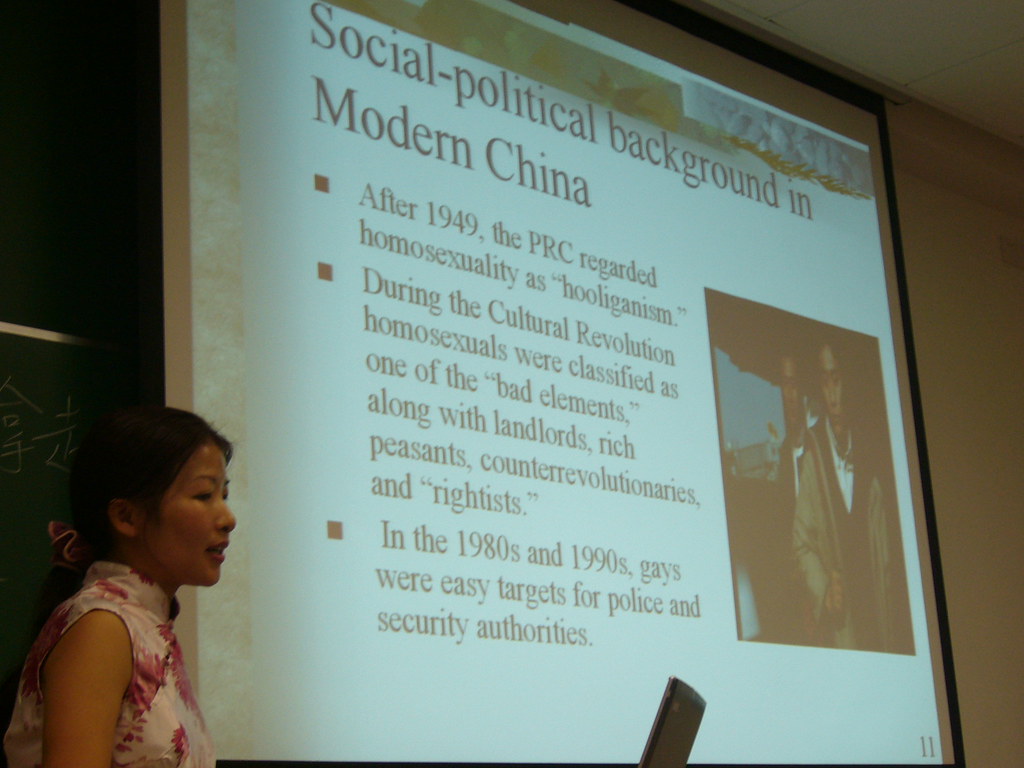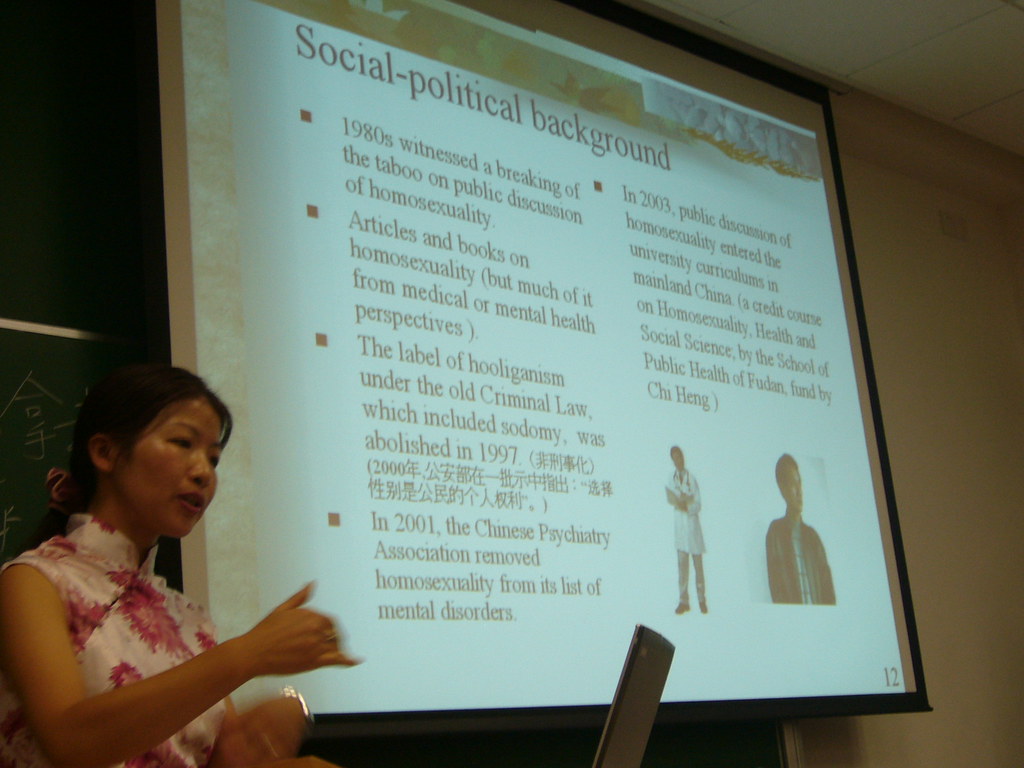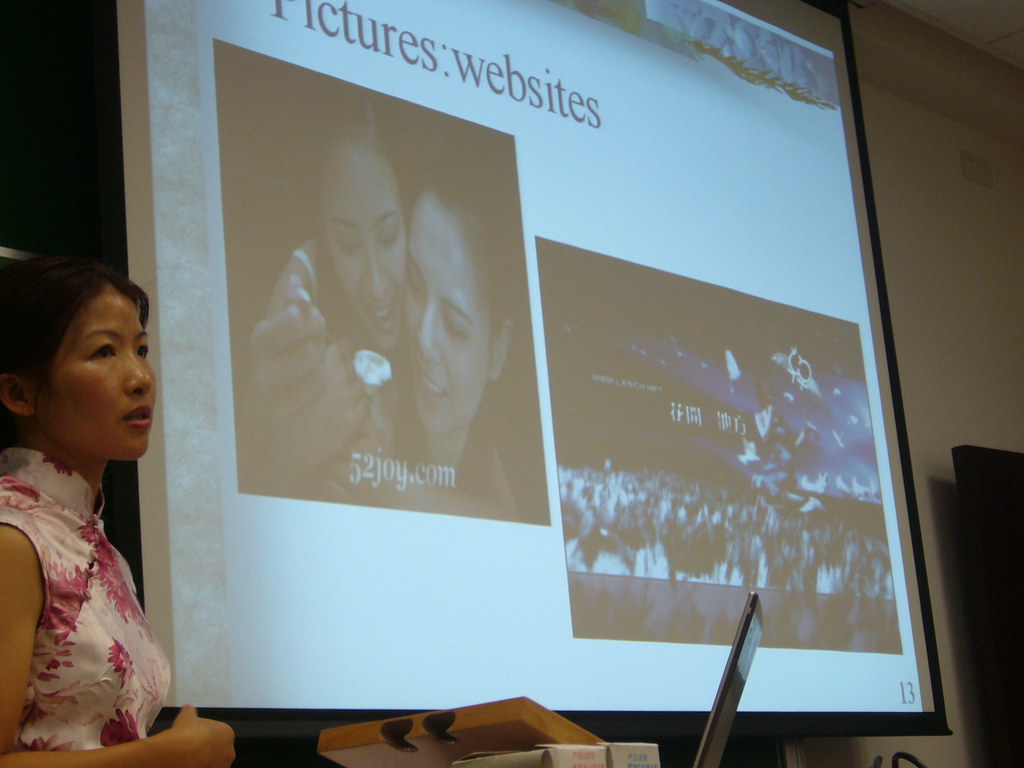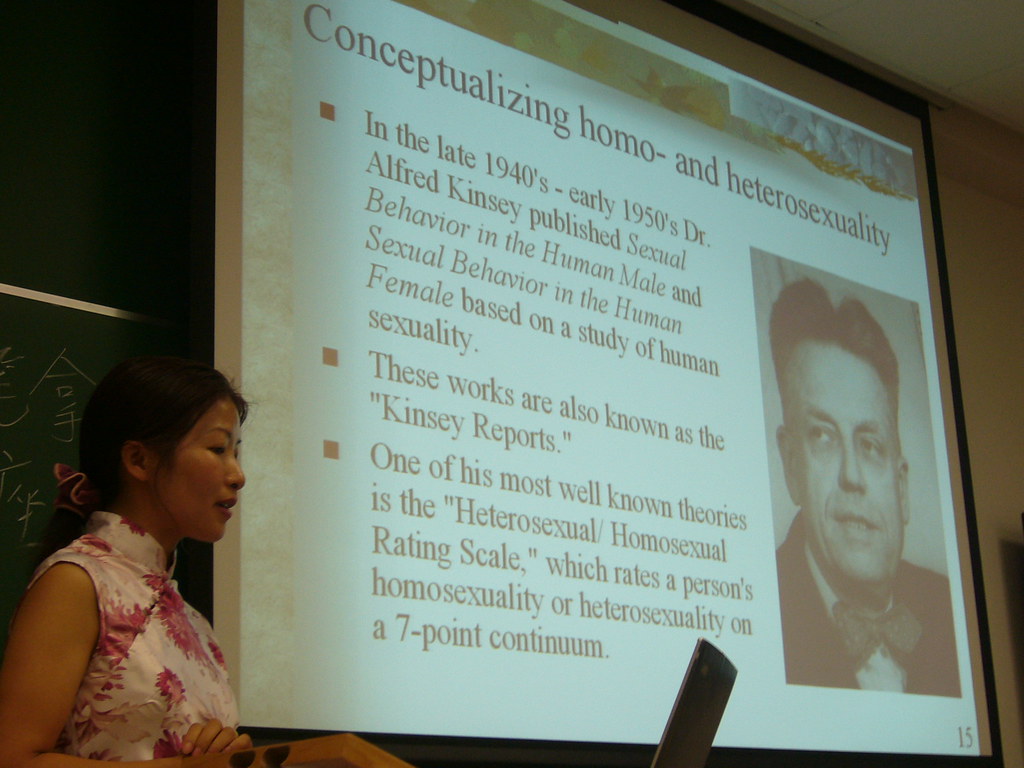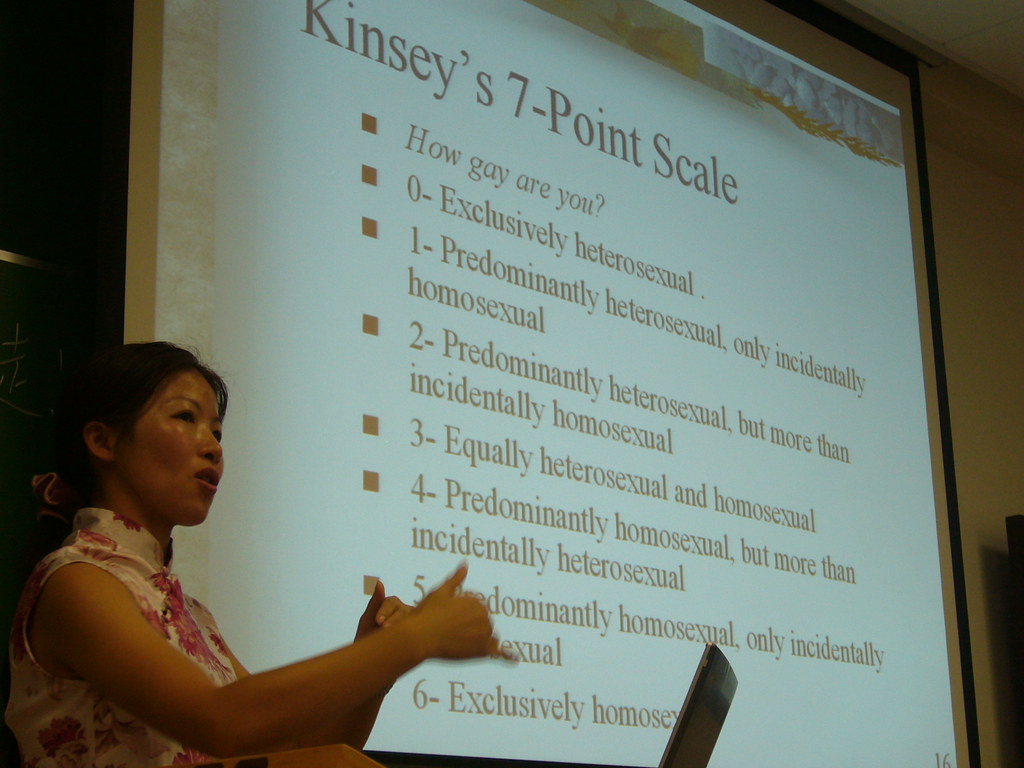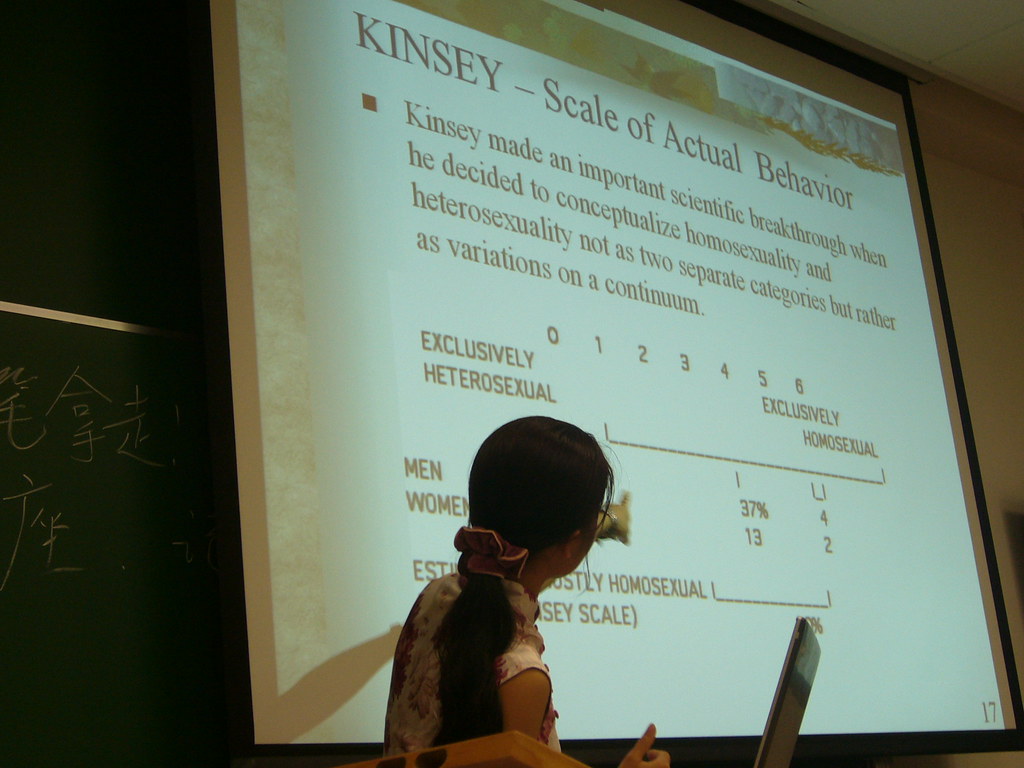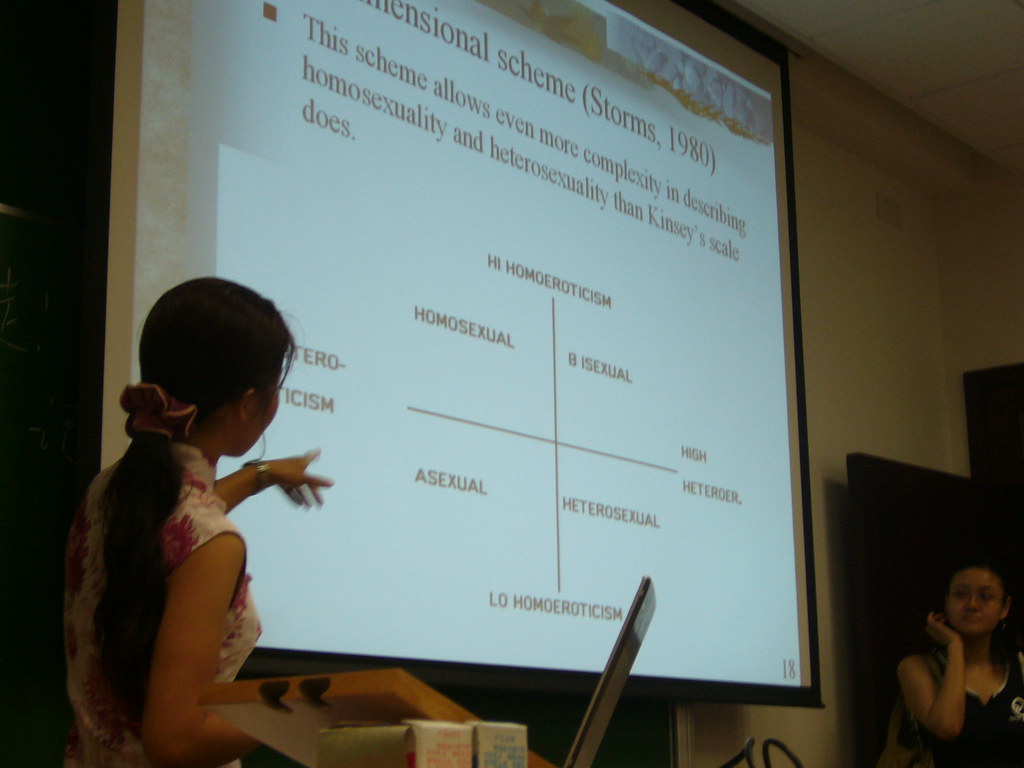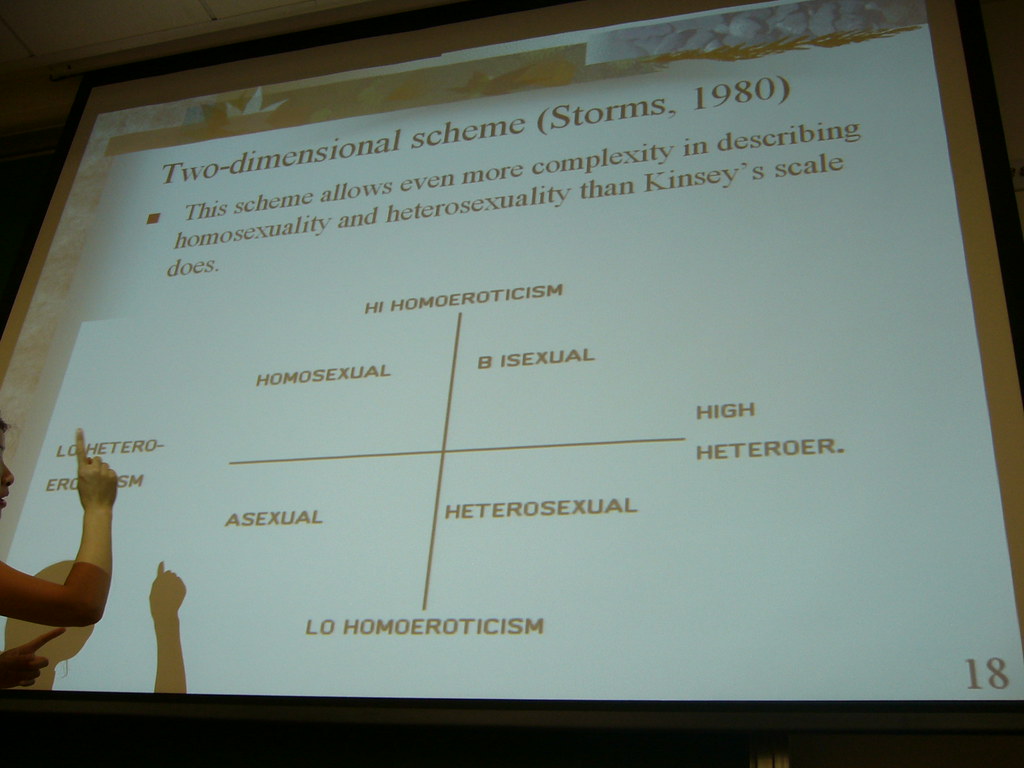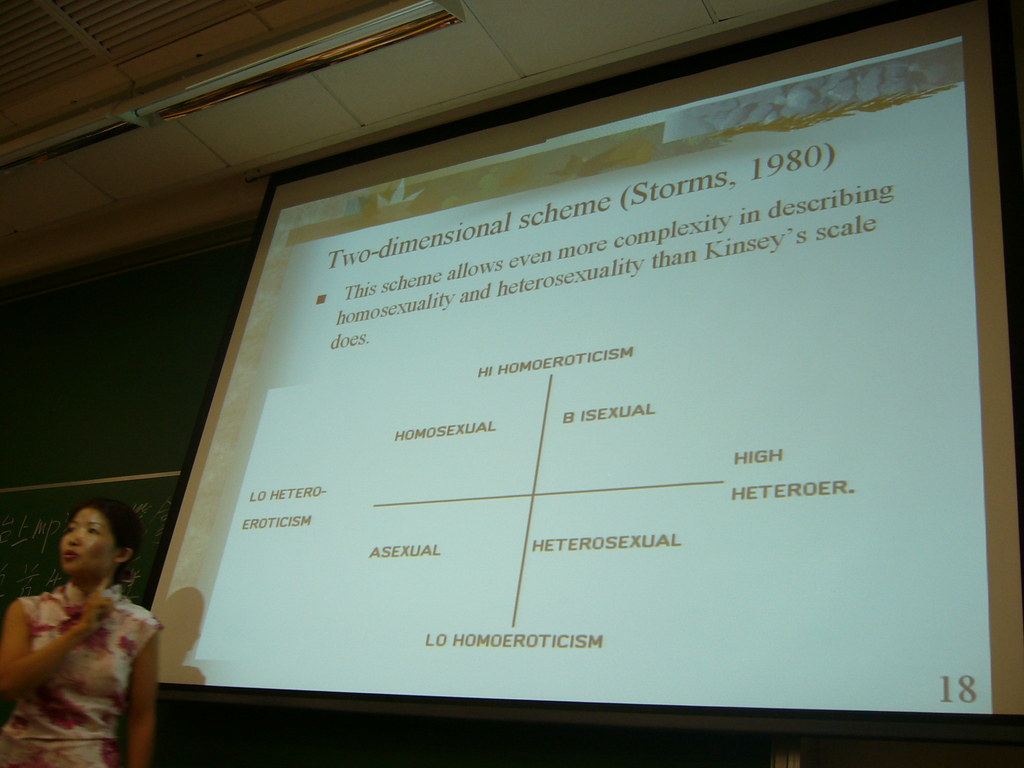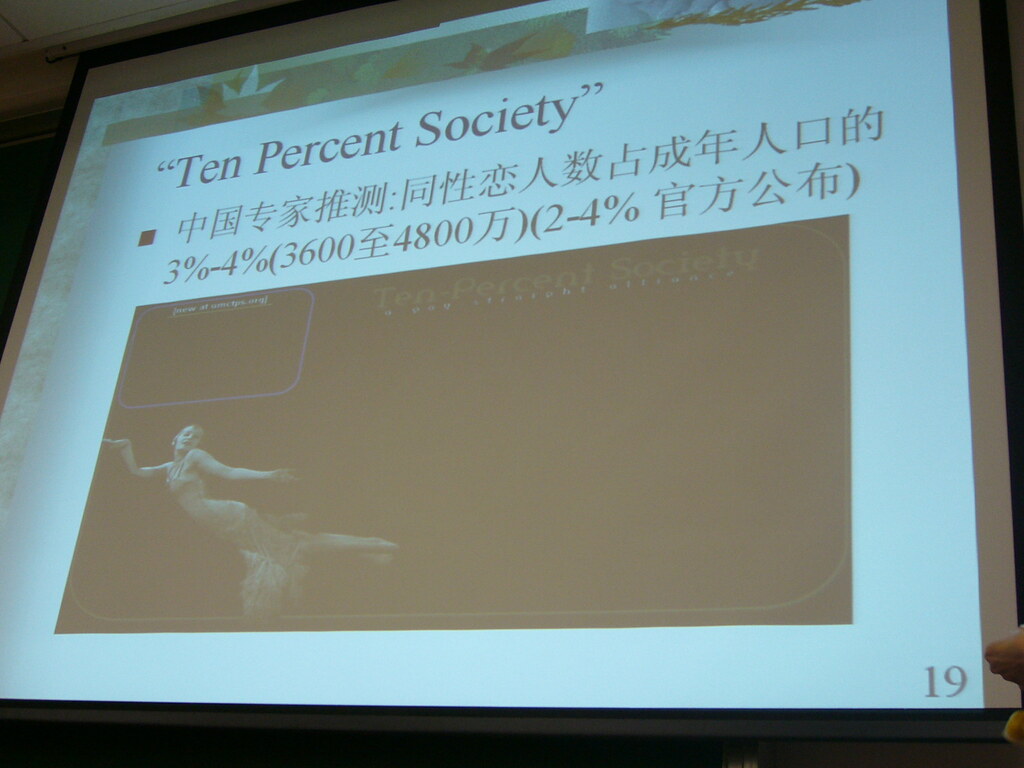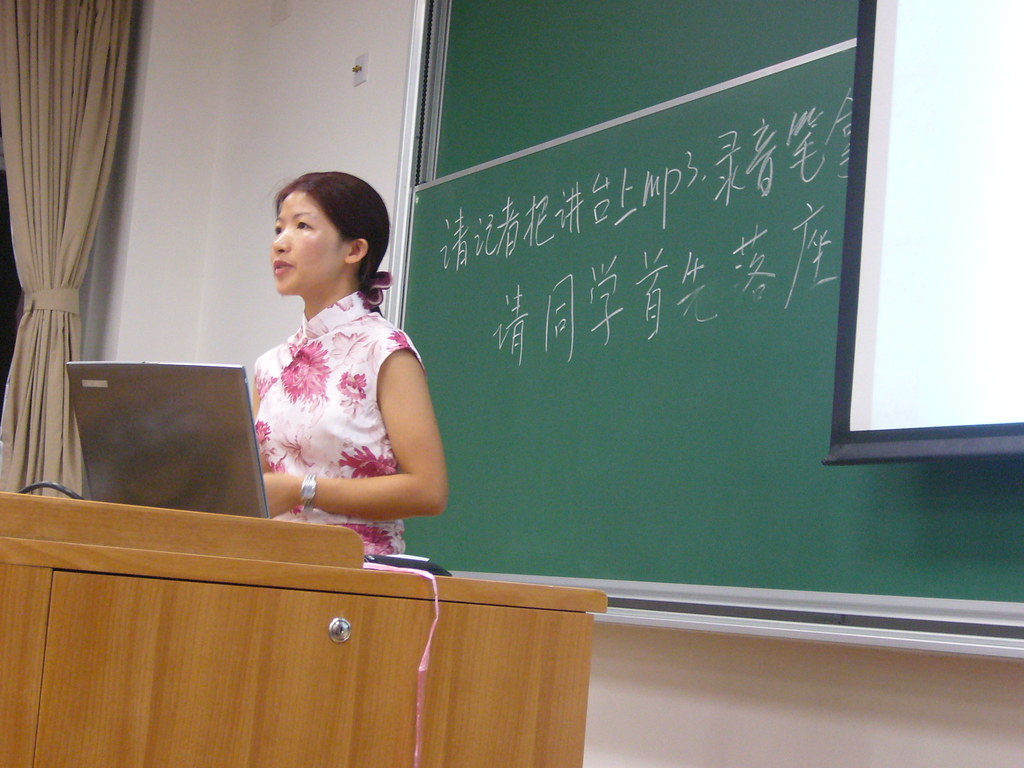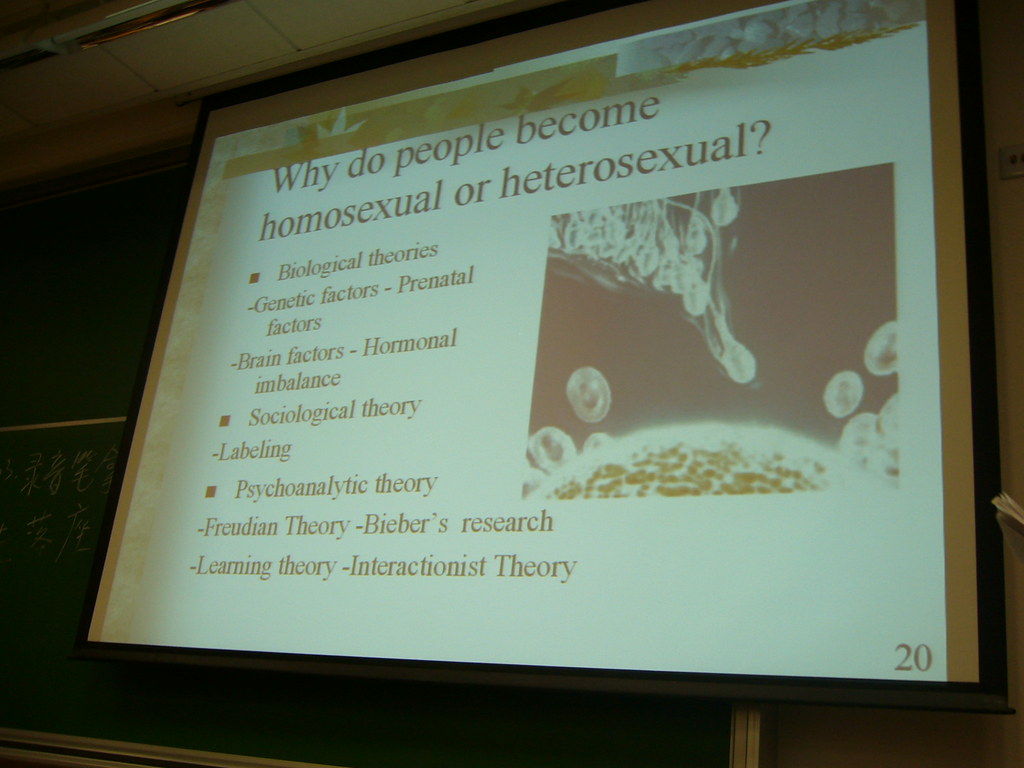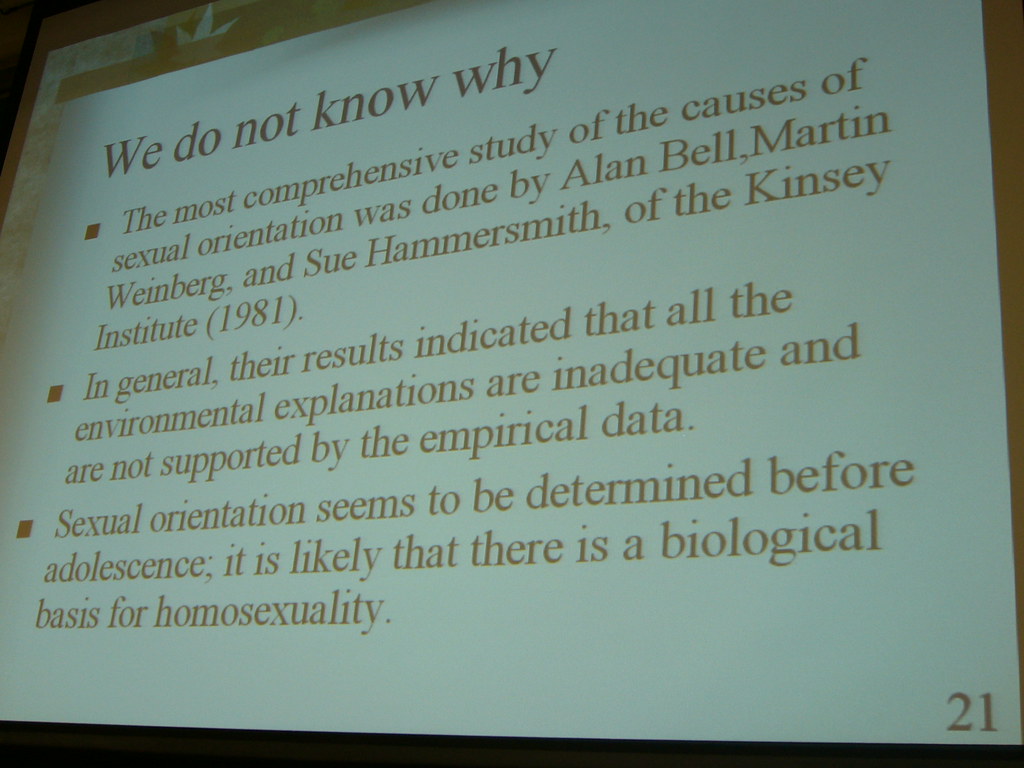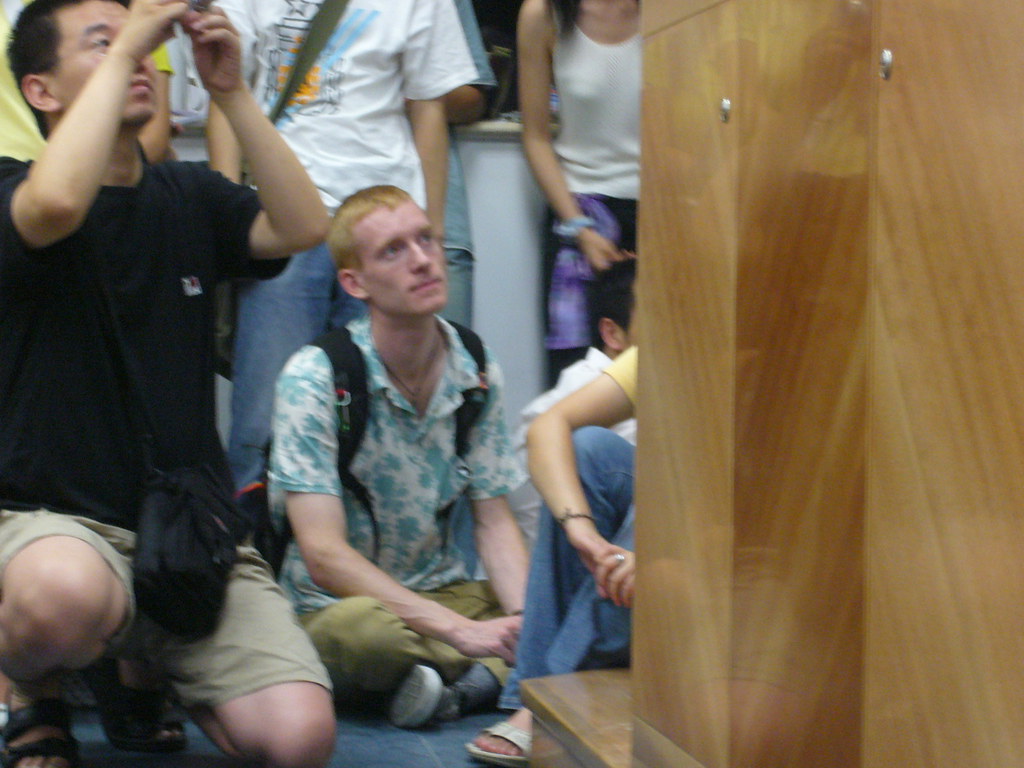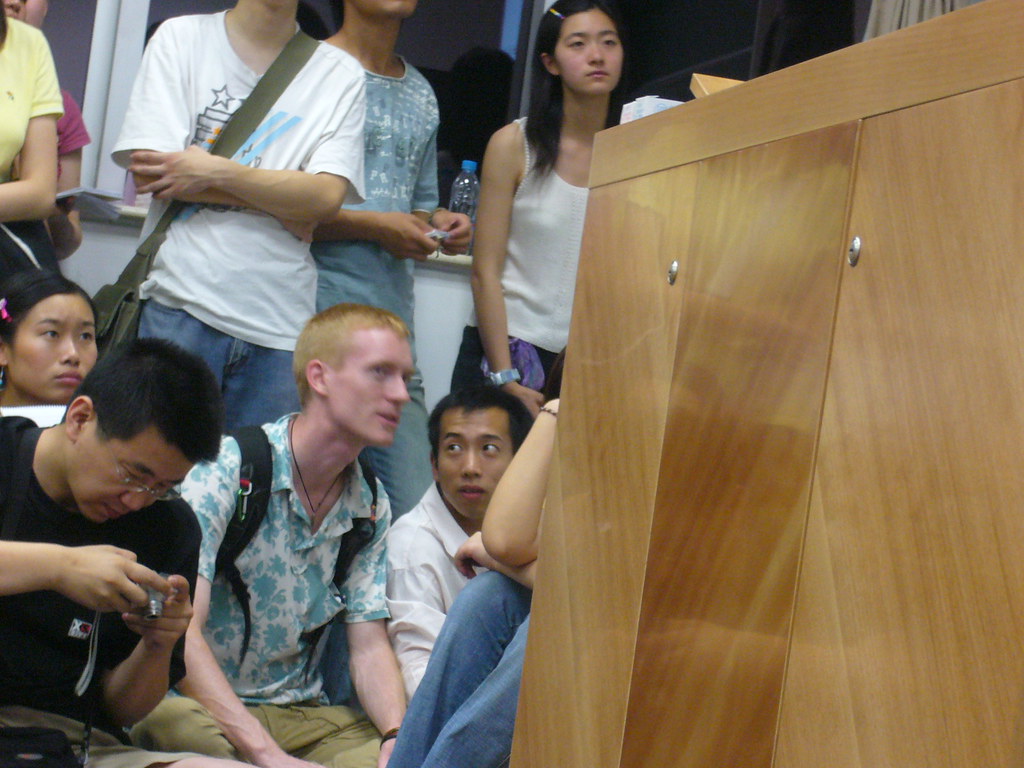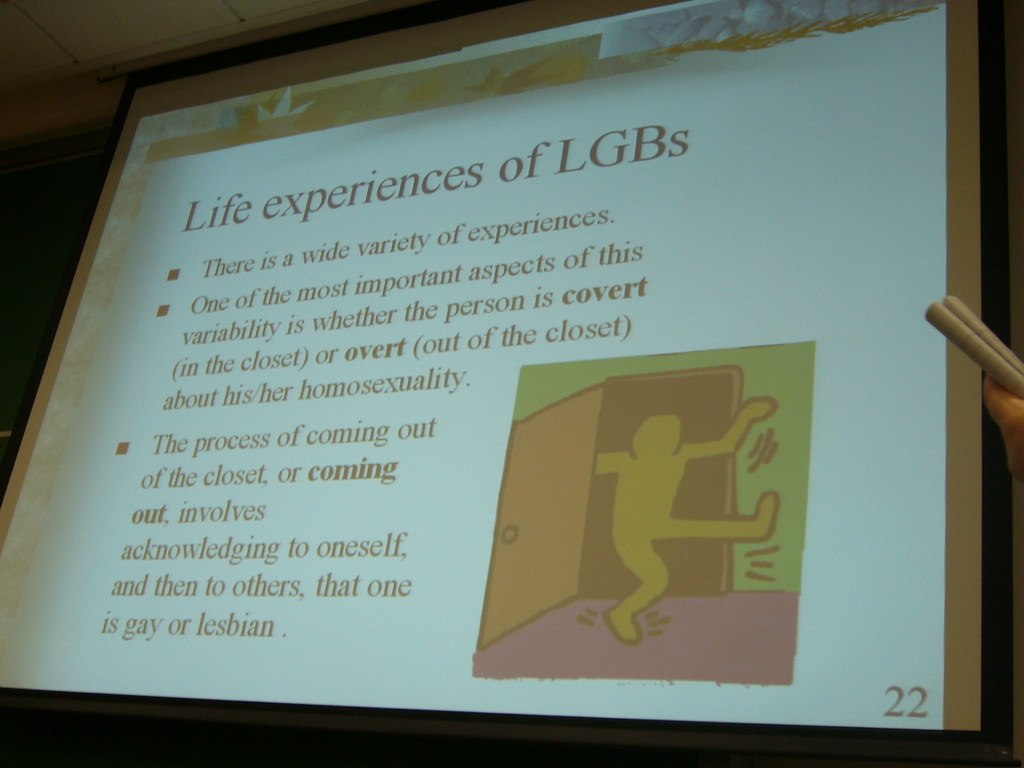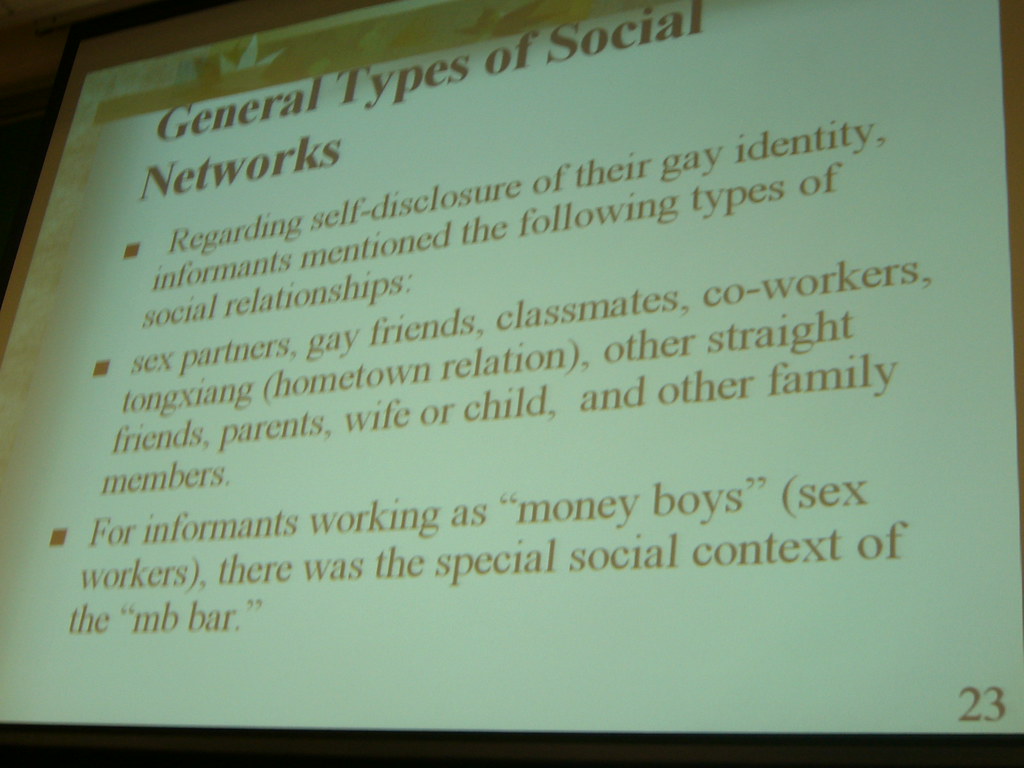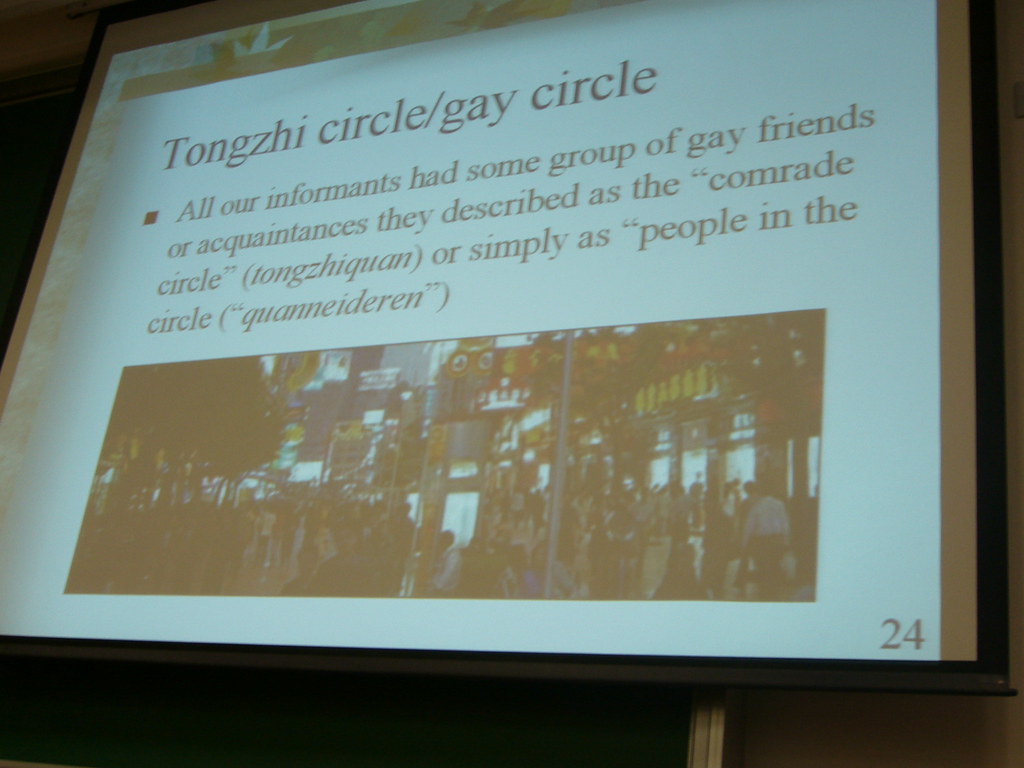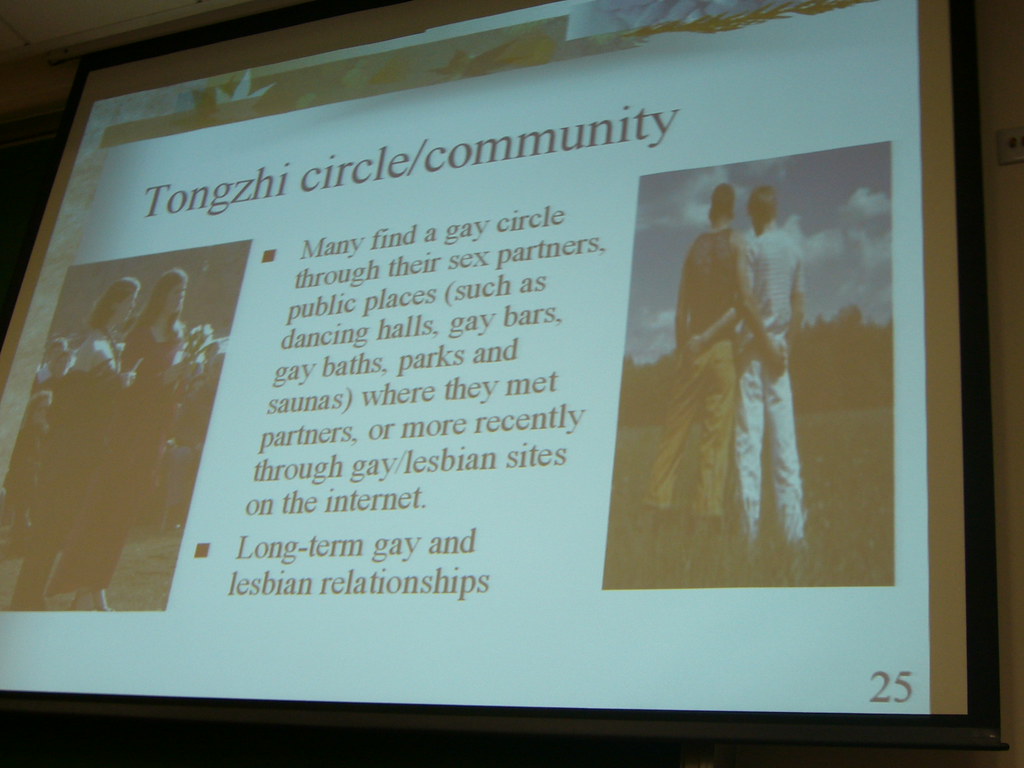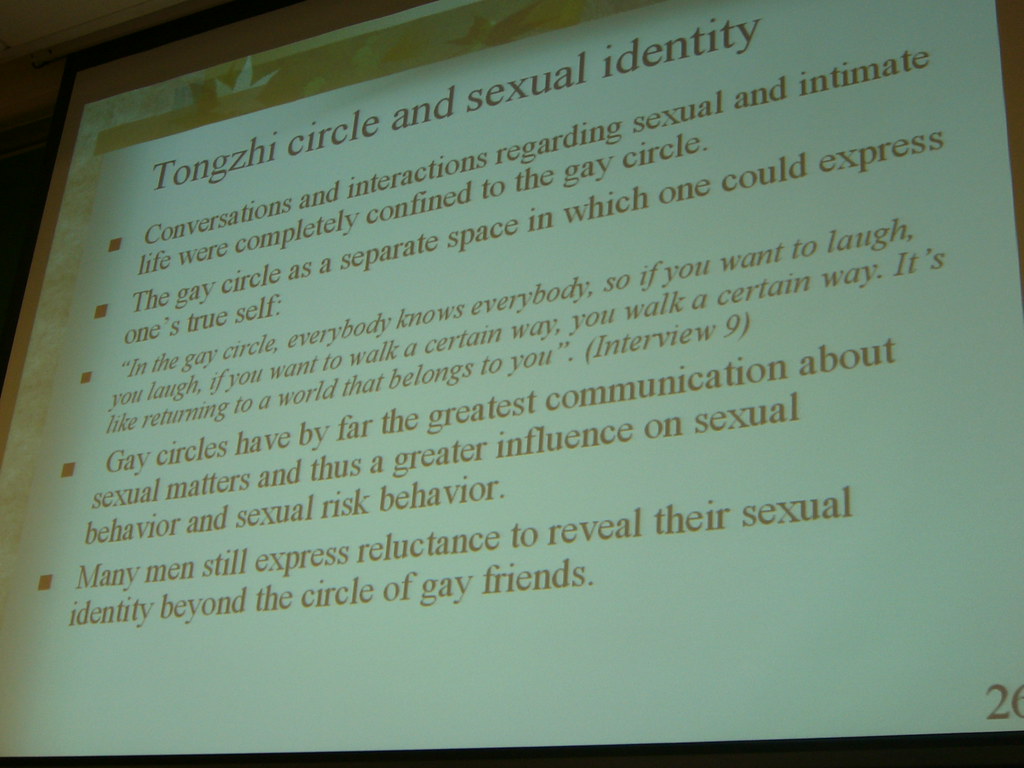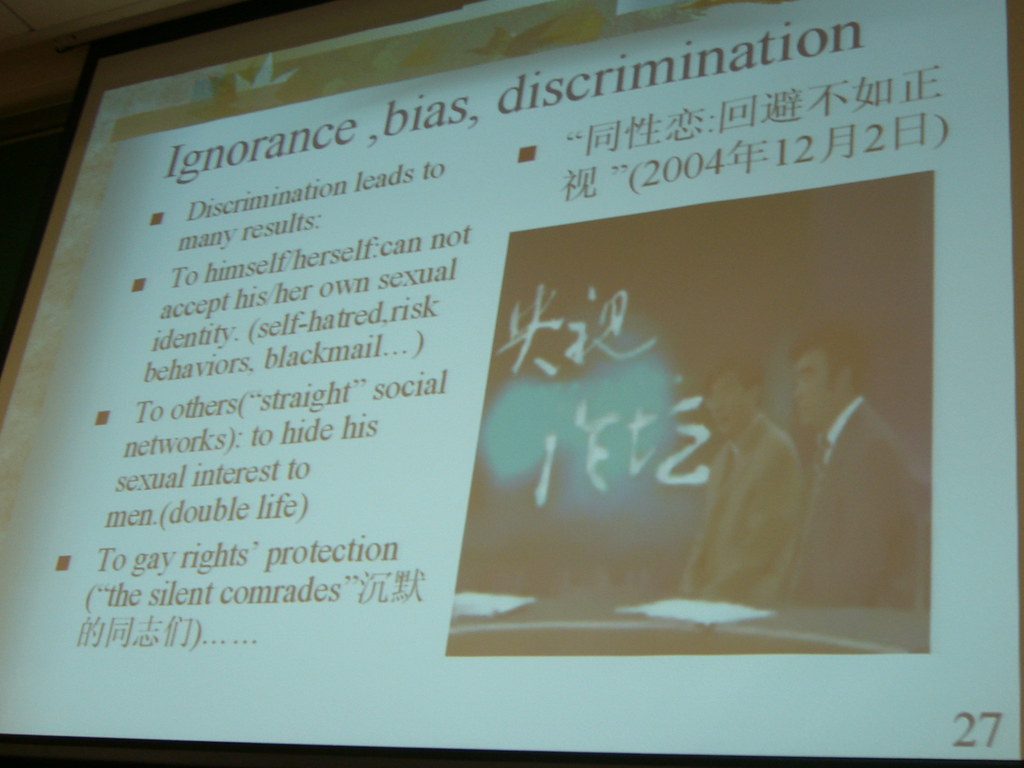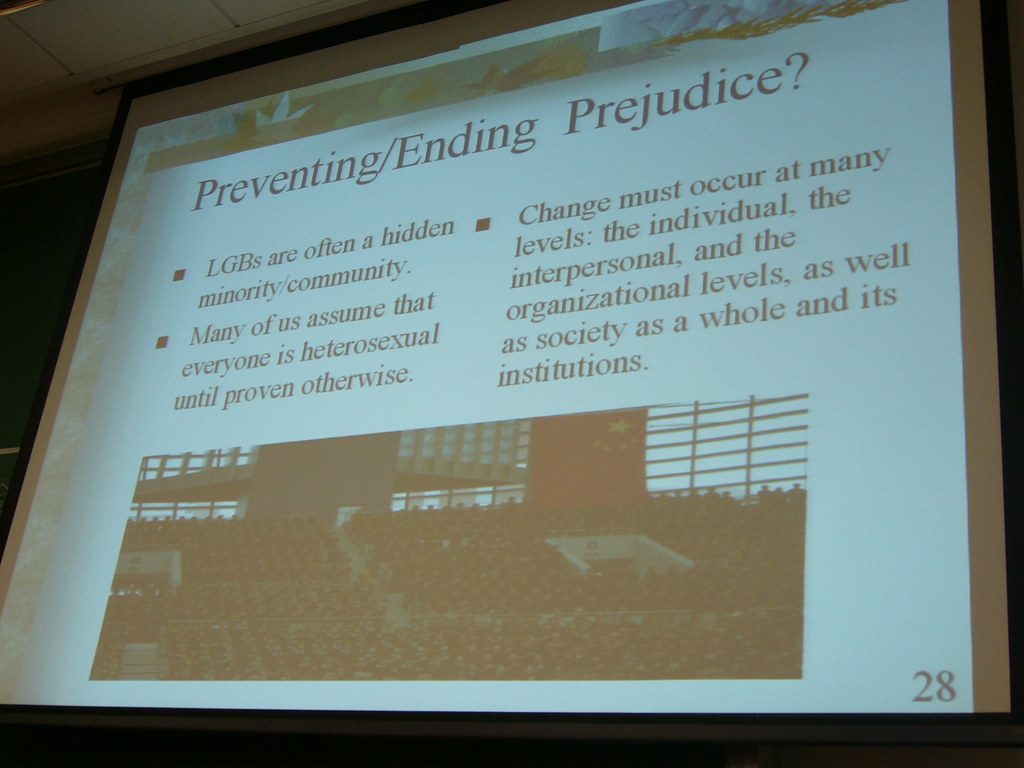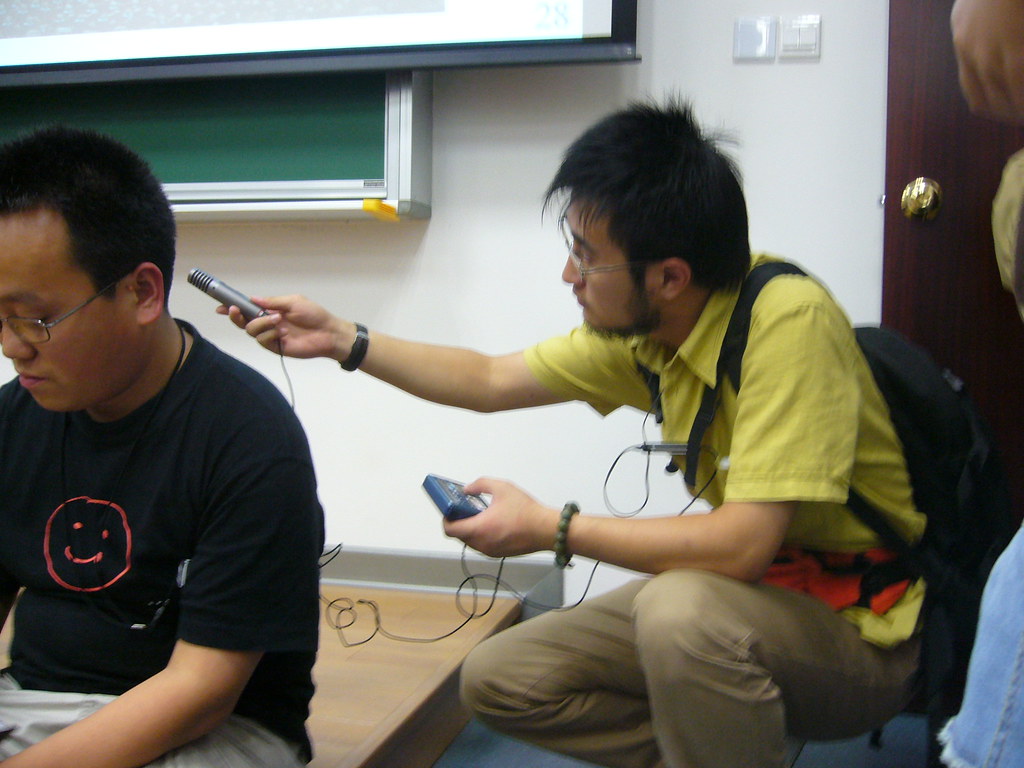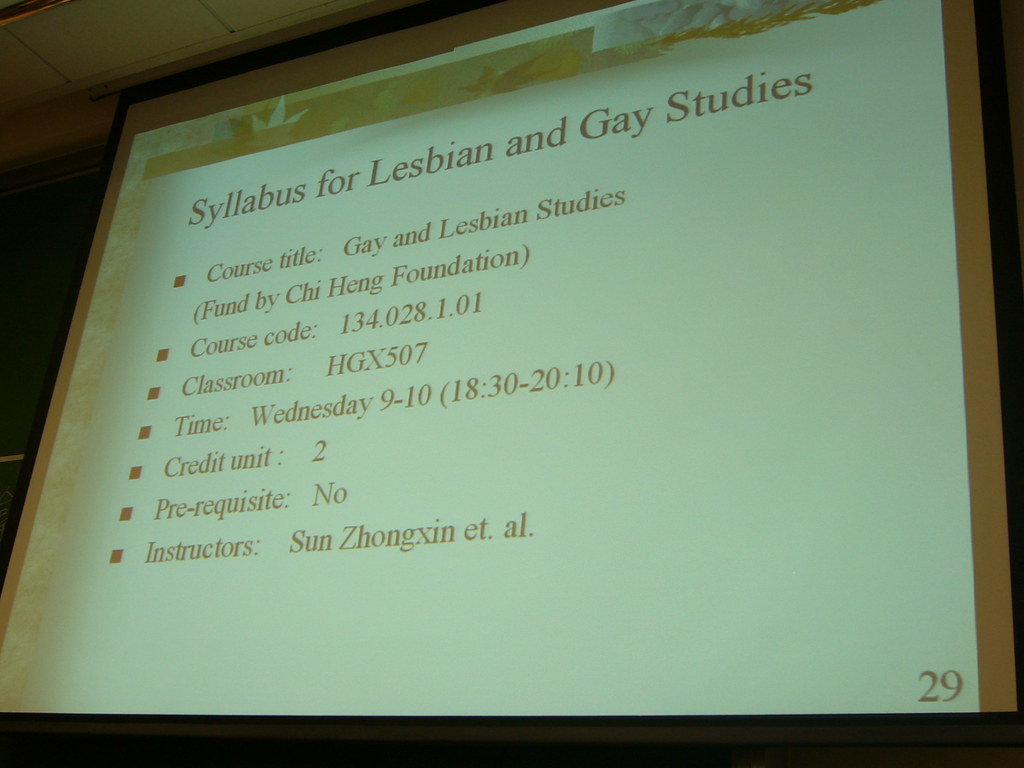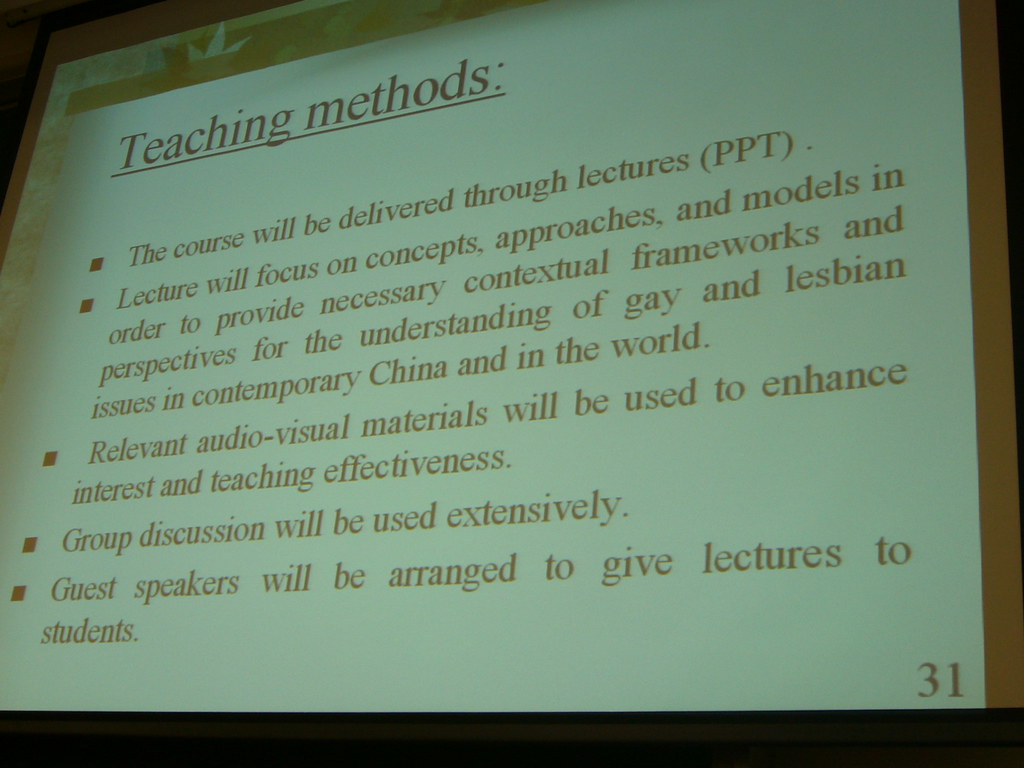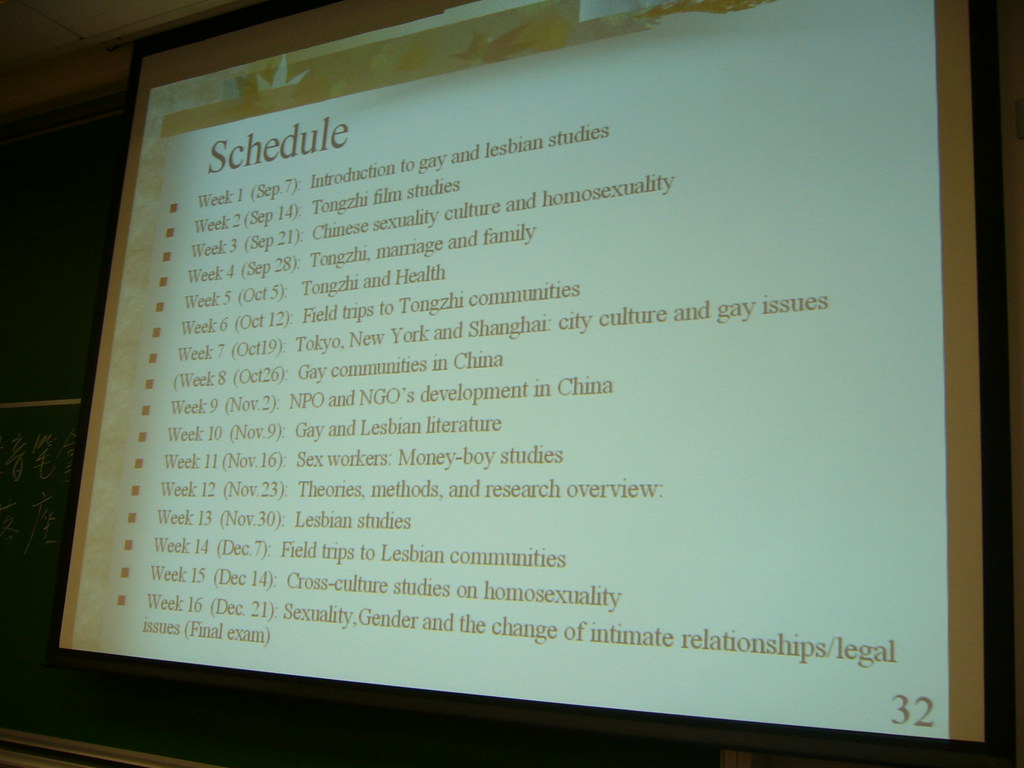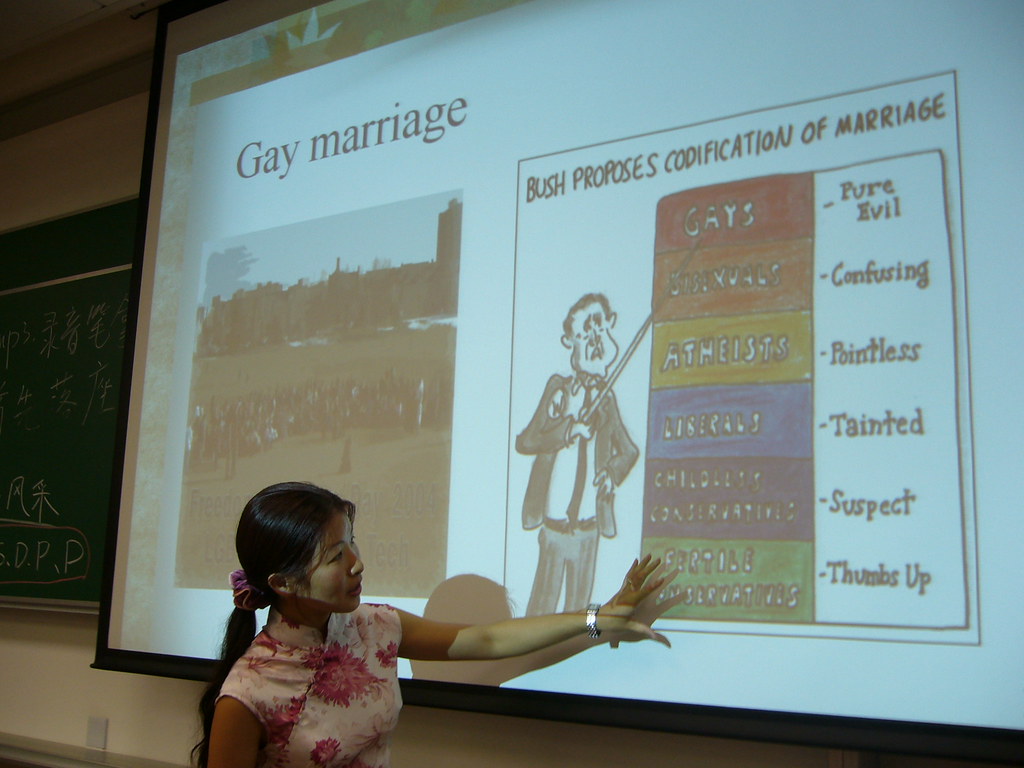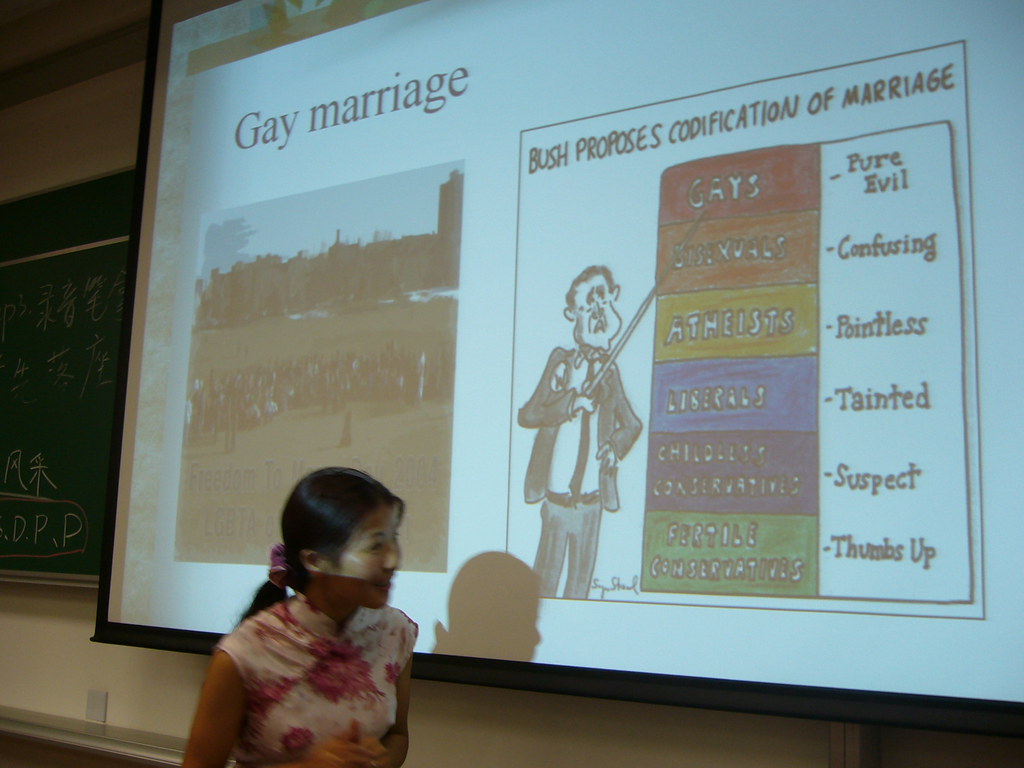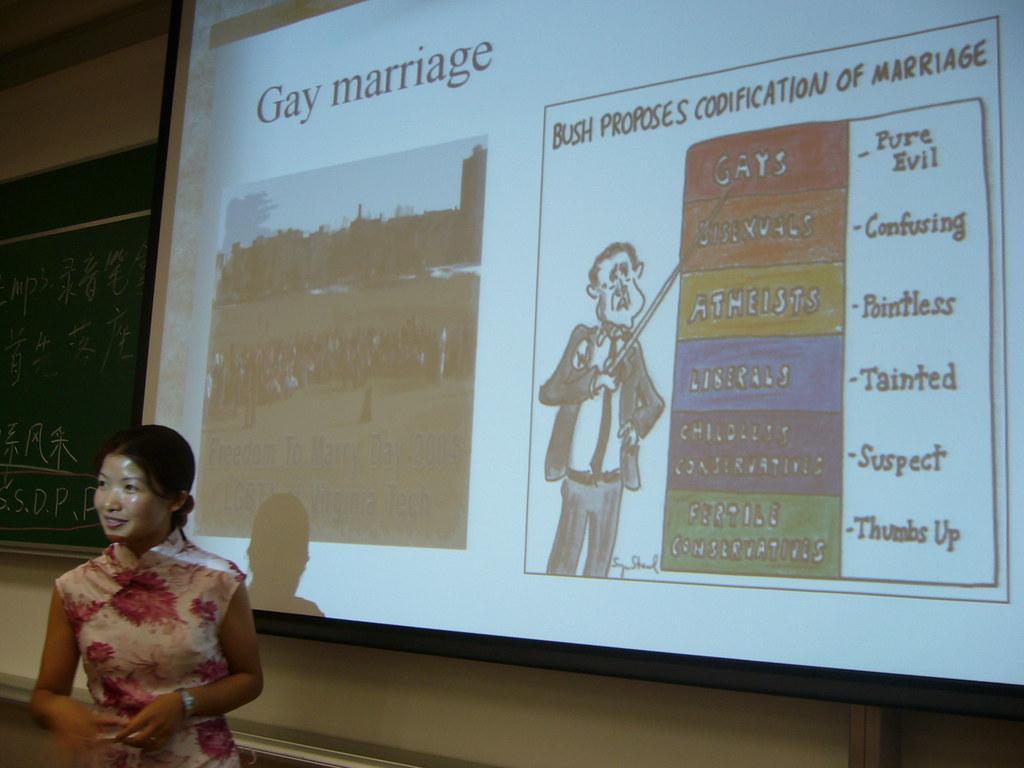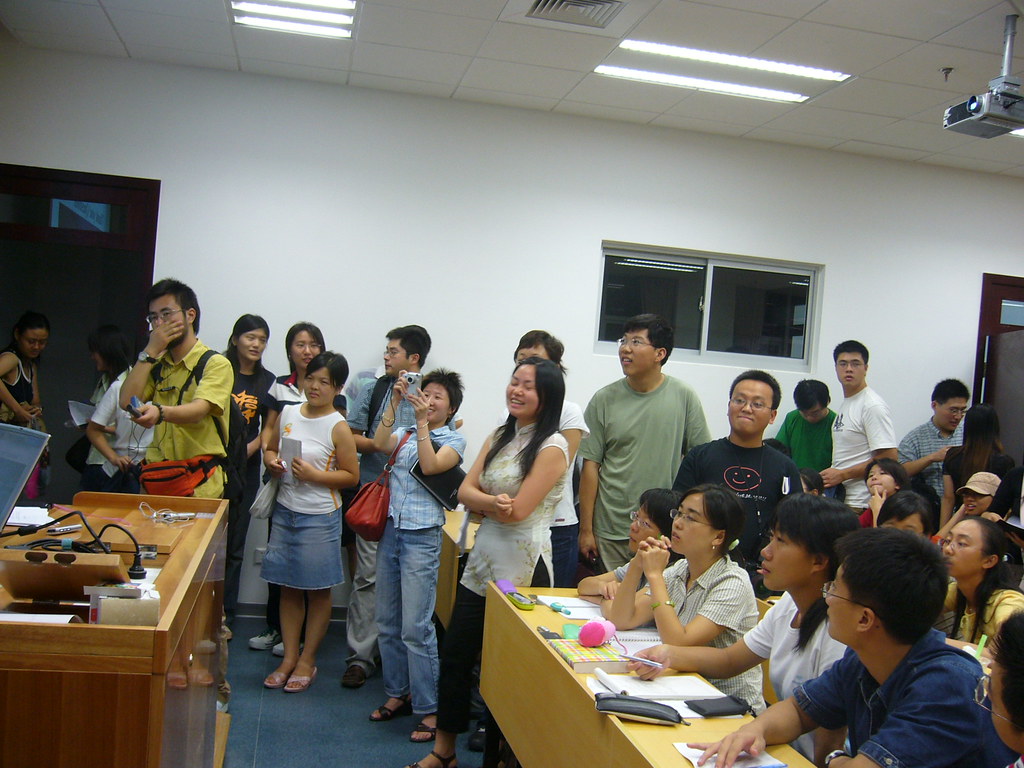了解中国系列:【漂亮照片】复旦美女教授开设中国大学第一个同性恋课程,听众如云,反响热烈(附:纽约时报评论)(照片为转载)
了解中国系列:【漂亮照片】复旦美女教授开设中国大学第一个同性恋课程,听众如云,反响热烈(附:纽约时报评论)
September 7, 2005
Sun Zhongxin at Fudan Homosexual Studies Course
A Chinese University Removes a Topic From the Closet
Ryan Pyle for The New York Times
A class on gay(男同性恋) and lesbian(女同性恋) studies at Fudan University in Shanghai has attracted an overflow crowd. The class is the first of its kind in China, which only recently began allowing discussions of homosexuality
SHANGHAI, Sept. 7 - As the class got under way, the diminutive teacher standing before an overcrowded lecture hall in this city’’s most exclusive university handed out a survey. The first of several multiple-choice questions asked students what their feelings would be if they encountered two male lovers: total acceptance, reluctant acceptance, rejection or disgust?
Prof. Sun Zhongxin is teaching the gay and lesbian studies class. \"The attitude toward homosexuality(同性恋) in China is changing,\" she said.
As a way of breaking the ice, the teacher, Sun Zhongxin, 35, with a Ph.D. in sociology and a fondness for PowerPoint presentations, read aloud some of the answers anonymously. In her survey, most of the 120 or so students said they would reluctantly accept gay lovers in their midst.
The Fudan University class, Introduction to Gay and Lesbian Studies, is the first of its kind ever offered to Chinese undergraduates, and Ms. Sun briefly wondered why it was so well attended, before providing her own answer. \"The attitude toward homosexuality in China is changing,\" she said. \"It is a good process, but it also makes us feel heavy-hearted. What’’s unfortunate about such heavy attendance is that it indicates that many people have never discussed the topic before.\"
\"Not only are people hiding in the closet,\" she concluded, \"but the topic itself has been hiding in the closet.\"
A class like this would be unremarkable(寻常) on most American university campuses, where many students are quite open about their homosexuality and the curriculum has long included offerings reflecting their interests. But among China’’s gay and lesbian population, which may be as large as 48 million by some estimates though it remains largely invisible, the new course is being portrayed as a major advance.
Less than a decade ago, homosexuality was still included under the heading of hooliganism(小流氓) in China’’s criminal code, and it was only in 2001 that the Chinese Psychiatric Association removed homosexuality from its list of mental illnesses.
\"This is definitely a big breakthrough(突破) in the contemporary(当今) society, because for so many years, homosexuals, as a community, have lived at the edge of society and have been treated like dissidents,\" said Zhou Shengjian, director of a gay advocacy group in Chongqing, an inland city far from Shanghai’’s cosmopolitanism. \"For such a university to have a specific course like this, with so many participants and experts involved, will have a very positive impact on the social situation of gay people, and on the fight against AIDS.\"
However much they welcomed the academic breakthrough, which is likely to spur similar courses on other campuses and perhaps eventually give rise to a gay and lesbian studies movement, many of today’’s gay and lesbian activists say they are no longer willing simply to wait patiently for the society to accept them.
In particular, gay activists have been able to leverage the rising alarm over the spread of AIDS to win more maneuvering space, including more acceptance from the government. Today, for example, by some estimates there are as many as 300 Web sites in China that cater to the concerns of gay men and lesbians.
Some of the sites focus strictly on health issues. Others tread into the delicate area of discrimination and human rights, and these are occasionally blocked temporarily or shut down by the government. Others feature downloadable fiction by gay writers, who deal candidly with matters of sexuality in ways that few publishers in China’’s tightly controlled book industry would allow. One of the most popular sites (www.gztz.org) includes detailed maps of gay entertainment areas, from saunas to nightclubs, in China and overseas.
\"In each provincial capital there is at least one gay working group that is active on H.I.V.-AIDS prevention,\" said Zhen Li, 40, a volunteer for a gay hot line based in Beijing. \"AIDS is not the main focus of our lives, though. We use the discussion of AIDS as a way of coming together on other issues, from getting coverage of gay life in the media to starting a discussion with the society.\"
For the most part, activists say, the government’’s attitude has been pragmatic. Groups that say they want to work on AIDS get official support. Those that focus on equal rights for gay people generally do not.
In almost the same breath, though, many also acknowledge that their strategy of using AIDS to create greater freedom carries a risk that they will be blamed for the spread of the disease.
\"This is a very sensitive issue among homosexuals, thinking that outsiders are equating them with AIDS,\" said Gao Yanning, a professor in the school of public health at Fudan University, whose course on homosexual life for the medical school was a precursor of the new undergraduate class. \"But we, the professors, have been very careful about this. When I was first thinking of a course called the theory and practice of homosexuality, I was approached by another professor who told me I should call the class ‘’Homosexuality and AIDS.'’ \"
Mr. Gao said he would have refused to teach the class if he had been forced to use such a name.
Many gay and lesbian Chinese say that it is social conservatism more than the government, whose policies during the Communist era have veered from repressive to prudish, that has discouraged gay people from publicly acknowledging their sexual orientation.
Chinese are hard pressed to name a single celebrity or notable person from their country who has lived an openly gay life, meaning that except for foreigners, young gay men and lesbians have no prominent role models. Explicitly gay literature or cinema and television roles are equally scarce.
A 52-year-old lesbian in the northeastern city of Dalian, who gave her name as Yang, said she had discovered her sexual identity only at age 36, after marriage, when she had her first relationship with another woman, a factory co-worker(同事).
\"When we were together, people would talk about our relationship behind our backs or sometimes ask outright whether we were gay people,\" Ms. Yang said. \"I was just ashamed and didn'’t know what to say, so I avoided my girlfriend in public occasions. The young gay people in Dalian today, though, seem to live in a very comfortable time.\"
\"They'’re not forced to get married,\" she said, \"and they take new partners one after another.\"
Many others, however, said the issue of marriage continued to weigh heavily.
\"If you tell your parents you have a boyfriend, that may be O.K., but you'’ve still got to get married,\" said Wang Xieyu, a junior at Fudan University. \"The parents have their own concerns, their friends and their reputations. China today is like the U.S. in the 1960′’s, but we are changing faster. What took 40 years in the States may only take 10 years in China.\"
关键字: 照片, 中国报道, 上海
